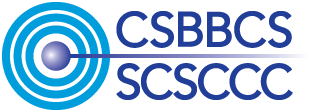Current Postdoctoral Positions / Graduate Opportunities
Western University: Postdoctoral Associate, EEG and Speech in Children
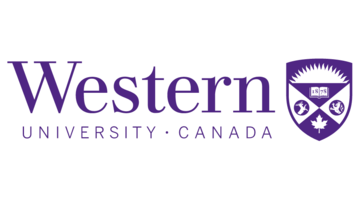
We are seeking a postdoctoral associate to contribute to a multi-year project funded by the Canadian Institutes for Health Research (CIHR) examining EEG markers of speech processing in children, and their relationship to reading and language impairments such as dyslexia and DLD. The candidate will join a diverse team of researchers in cognitive neuroscience, computational neuroscience, and communication sciences and disorders, led by Drs. Marc Joanisse, Laura Batterink, Blake Butler and Janis Oram. Our research program involves collecting and analyzing EEG to natural speech in children ages 3- to 8-years, alongside measures of cognitive and language development, with a focus on multivariate temporal response functions (mTRFs) and related models linking auditory data to EEGs. The candidate will also analyze the relationships between brain and behavioral measures to better understand how EEG measures of speech relate to typical and impaired reading and language development. In addition to contributing to the project, the candidate will have the opportunity to investigate additional research questions within the fields of cognitive and computational neuroscience and communication sciences and disorders. Western boasts state-of-the-art developmental cognitive neuroscience facilities, including MRI/fMRI, multiple EEG systems, sleep labs, fNIRS, and TMS/TDCS/TACS. A state of the art OPM-MEG facility is also planned for 2025-2026.
As part of their role in the project, the candidate will assist with project management, collaboration across labs, liaising with community and partner organizations, supervising and mentoring graduate and undergraduate trainees, directing and/or conducting analyses, writing up results as presentations and journal articles, as well as communicating knowledge outside academia.
The salary for this position is $65,000 per year, plus benefits. Information about benefits for postdoctoral associates at Western University is available at: https://www.uwo.ca/hr/benefits/your_benefits/pda/index.html. The successful candidate will report to Dr. Marc Joanisse, Department of Psychology. Review of applications will begin October 15, 2024, and will continue until the position is filled. This appointment can begin as early as November 1, 2024, with an initial appointment of one year and renewable up to a total of 3 years.
Applicants must have a Ph.D. in cognitive neuroscience, psychology, speech-language pathology, or a related field. The ideal applicant will have experience in one or more of the following: developmental cognitive neuroscience of language and/or cognition; EEG and/or related neuroimaging methods; computational skills related to applying machine learning to EEG or similar datasets. The ideal applicant will also have excellent written and oral communication in English, an emerging publication record, and excellent personal time management, project management and organizational skills. Applicants should submit curriculum vitae, a brief statement of research interests, a representative preprint or publication, and names and contact details (email and telephone) of two referees we may contact. Our team deeply values diversity and strongly encourages candidates from all under-represented groups to apply, and to self-identify if they feel comfortable doing so. Informal inquiries are welcome.
Please direct your application and any inquiries to:
Dr. Marc Joanisse
Department of Psychology
Western University
Email: marcj@uwo.ca
For more about Western’s Centre for Brain and Mind, see https://www.uwo.ca/bmi/
About Western
Western ranks as one of Canada’s top research-intensive universities. From fundamental to applied discovery and other scholarly activities, its scholars advance knowledge that provides tangible benefits for the economic, social, health and cultural development of citizens in London, in Canada and around the world. Western Research supports scholars through collaboration, communication, and service. Western University and its affiliate colleges received more than $267 million in research funding over the past year.
Western Values Diversity
The University invites applications from all qualified individuals. Western is committed to employment equity and diversity in the workplace and welcomes applications from women, members of racialized groups/visible minorities, Indigenous persons, persons with disabilities, persons of any sexual orientation, and persons of any gender identity or gender expression. Accommodations are available for applicants with disabilities throughout the recruitment process.
Université Laval: Postdoctoral Position, Applied Cognitive Psychology and Human Performance
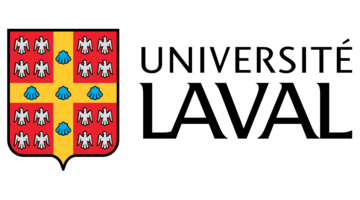
A postdoctoral position will be available from January 2025 at the Faculty of Social Sciences at Université Laval, Quebec City, Canada, under the supervision of Dr. Sébastien Tremblay, full professor at the School of Psychology. Sebastien Tremblay is the director of the Co-DOT lab (www.co-dot.ulaval.ca), a research laboratory specialized in applied cognitive psychology and human performance.
This is a full-time position for 6 months (extensible) related to the human-technologies interaction. Recent advances in computer engineering, machine learning and artificial intelligence lead toward a world within which humans and automatic systems are required to coexist, cooperate and share a common environment or via augmented and virtual reality. As part of this research program, the selected candidate will work at developing mixed initiative systems in which both human and machine share tasks and decisions depending on their state and on the context. For instance, the candidate will be asked to build a model predicting the cognitive and affective state of the user from behavioral and physiological measures. This project will be carried out in a multidisciplinary context, comprising experts from several domains such as human factors, robotics, machine learning, virtual and augmented reality, and automatic computerized systems.
The preferred candidate will have the following qualifications:
- PhD in cognitive psychology or cognitive sciences;
- Superior skills with writing journal manuscripts;
- Ability to supervise and coordinate undergraduate research projects and graduate students;
- Be able to effectively balance multiple tasks and projects;
- Detail-oriented, motivated, efficient, and able to work independently and in a team environment;
- Experience with analyzing psychophysiological data is an asset (e.g., ocular, cardiac, respiratory, electrodermal activity);
- Excellent communication and organization skills (knowledge of French is an asset);
- Experience with conducting multidisciplinary projects in collaboration with industrial partners is an asset;
- Experience with writing grant applications is an asset.
Interested applicants may forward a cover letter, two letters of recommendation and their curriculum vitae by email to:
Dr. Sébastien Tremblay
École de psychologie
Faculté des sciences sociales
2325, rue des Bibliothèques
Email: sebastien.tremblay@psy.ulaval.ca
Notes:
Salary will be CA$60,000 per year plus travel budget for attending conferences.
We thank all applicants for their interest; however, only individuals selected for an interview will be contacted.
Western University: Postdoctoral Fellow, Mouse to Human Translational Cognition

Two full-time, two-year senior postdoctoral positions are available with the Mouse Translational
Research Accelerator Platform (MouseTRAP) team at Western University in London, ON. These
positions involve validating a harmonized battery of identical or near-identical cognitive tests that
can be used in mouse models and human patients to characterize disease pathology and
therapeutic targets. Successful candidates will work with principal investigators Dr. Tim Bussey,
Dr. Adrian Owen, and Dr. Lisa Saksida.
About Us
The Mouse2Human team at MouseTRAP is building on preliminary work demonstrating that
testing mice and humans on near-identical cognitive tasks is feasible and can reveal similar
impairments in both groups. We are now scaling these eIorts to validate the use of these tests in
clinical settings for neurological conditions such as Alzheimer’s disease (AD) and Parkinson’s
disease (PD). This project will involve:
- defining appropriate cognitive tasks for various disease pathologies as well as across the lifespan in healthy populations
- developing and refining cross-species touchscreen tasks that are validated in both mouse and humans
- designing and implementing experiments to demonstrate these tasks have predictive value in populations with neurological disorders, include investigating traditional cognitive assessments vs. touchscreen assessments in the context of MCI, AD, PD, etc.
Validating the predictive value of these tasks in affected populations is critical for developing co-clinical trials, where next-generation humanized mouse models and a specific battery of
cognitive tests will be studied in parallel with human clinical cohorts.
Responsibilities
With the ultimate goal of creating a harmonized battery, one position will be dedicated to mouse
task validation, while the other will focus on human task validation. Although these are
distinct roles, the cross-species integration will require extensive cooperation and collaboration
within the Mouse2Human team.
The selected candidates will leverage MouseTRAP, a groundbreaking platform designed to address
the urgent and critical challenge of translating neurocognitive research from mouse models to
human patients. This platform uses a touchscreen-based cognitive testing system that enables
the flexible presentation of comprehensive test batteries, bridging the gap between pre-clinical
studies and cognitive assessments in humans. This innovative approach ensures high
translational relevance, advancing the understanding of neurodegenerative diseases that impact
millions globally, and paving the way for targeted interventions.
Candidate Qualifications
We seek highly qualified candidates with the following qualifications:
- A Ph.D. in Psychology, Neuroscience, Pharmacology, or a related field.
- Expertise in cognitive testing, with preference for experience in mouse and human studies depending on the application stream.
- Strong computational skills, with proficiency in programming highly desirable.
Position Details
- Appointment: Two-year postdoctoral position.
- Salary: $50-70k per year plus benefits, commensurate with experience
- Start Date: Immediate availability preferred, but a start date as late as September 1, 2025, is acceptable.
About Western University
The Western University (www.uwo.ca) is a major educational and research center in Ontario with
over 25,000 undergraduate and 5,000 graduate students. Cognitive neuroscience in health and
disease is a major research focus at Western. London, also known as the Forest City, is an
affordable and lively community close to the Great Lakes and two hours from Toronto. The city
offers many options for outdoor and cultural activities.
Western is committed to employment equity and diversity in the workplace and welcomes
applications from women, members of racialized groups/visible minorities, Indigenous persons,
persons with disabilities, persons of any sexual orientation, and persons of any gender identity or
expression.
Application Process
Please send the following materials to Gregg Paisley, BrainsCAN Administrative OIicer, at
gpaisle@uwo.ca:
- A statement of interest, indicated if you are perusing the mouse or human focused position.
- Curriculum Vitae.
- Names and contact information of at least two references.
The first cohort of applications will be reviewed starting March 31, 2025 with selected
candidates notified for interviews no later than April 15, 2025.
Additional Information
For more information, visit:
Key References
• Mar, A. C. et al. The touchscreen operant platform for assessing executive function in rats
and mice. Nat Protoc 8, 1985–2005 (2013).
• Horner, A. E. et al. The touchscreen operant platform for testing learning and memory in
rats and mice. Nat Protoc 8, 1961–1984 (2013).
• Oomen, C. A. et al. The touchscreen operant platform for testing working memory and
pattern separation in rats and mice. Nat Protoc 8, 2006–2021 (2013).
• Beraldo, F. H. et al. MouseBytes, an open-access high-throughput pipeline and database
for rodent touchscreen-based cognitive assessment. eLife 8, (2019).
• Nithianantharajah, J. et al. Bridging the translational divide: identical cognitive touchscreen
testing in mice and humans carrying mutations in a disease-relevant homologous gene. Sci
Rep 5, 14613 (2015).
• Sullivan, J. A. et al. New Frontiers in Translational Research: Touchscreens, Open Science,
and The Mouse Translational Research Accelerator Platform (MouseTRAP). Genes Brain
Behav. doi:10.1111/gbb.12705.
University of Manitoba: Postdoctoral Fellow, Memory / Computational Modelling

The Cognitive Science Laboratory at the University of Manitoba invites applications for a postdoctoral researcher to help develop and test computational models of cognition in relation to memory, learning, knowledge representation, and categorization. The particular topic of focus will be collaboratively decided based on the overlap between the lab’s and the applicant’s expertise and interests.
The position will be full time with an initial appointment of 1 year with possible renewal for a second year. Salary will be $50,000/year plus benefits according to University of Manitoba guidelines. Start date is flexible but a start date of September 1 2024 is ideal.
Applicants must have a PhD in cognitive psychology or cognitive science. The preferred candidate will have the following qualifications:
- Experience and skills in computational modelling of cognitive and memorial processes
- Experience and skills in experimental design and online data collection
- Strong writing skills
- An interest in instance/exemplar-based approaches to understanding cognition
Interested individuals can apply by emailing a cover letter, CV, copies of relevant publications, and contact information for two referees. Applications and/or questions can be emailed to Randy Jamieson at randy.jamieson@umanitoba.ca.
Review of applications will begin immediately and continue until the position is filled.
Laboratory website: https://umcognitivesciencelaboratory.weebly.com
The University of Manitoba is strongly committed to equity and diversity within its community and especially welcomes applications from women, racialized persons, Indigenous peoples, persons with disabilities, persons of all sexual orientations and genders, and others who may contribute to the further diversification of ideas. All qualified candidates are encouraged to apply.
University of Waterloo: Postdoctoral Fellow, Cognition

The cognition group at the University of Waterloo Department of Psychology is inviting applications for one or more post-doctoral fellows. The position will provide significant autonomy for the fellow(s) to develop an independent research program that intersects with the interests of one or more scholars in the Waterloo cognitive and behavioural science community, which may include but need not be limited to Dr. Clara Colombatto, Dr. Jonathan Fugelsang, Dr. Sam Johnson, Dr. Derek Koehler, and Dr. Evan Risko. We are considering candidates with existing funding (e.g., SSHRC or NSERC fellowships) as well as those who would require funding directly from their Waterloo PI.
The fellow(s) will join an exciting departmental community of cognitive and behavioural scientists working in cognitive psychology, cognitive neuroscience, developmental psychology, and social psychology. Researchers in our group are especially focused on decision-making, reasoning, learning, memory, attention, perception, metacognition, and how these processes interface with other parts of the mind. We are seeking qualified individuals to collaborate on the development of new and exciting projects in any (or all) of these areas as well as applications into topics such as education, human-AI interaction, and misinformation. Research tools available in the labs include eye tracking, psychophysiological recording, video recording, and virtual reality. The fellow will have the opportunity to forge ties not only with other Psychology faculty but with researchers across the University with shared interests in cognitive and behavioural sciences, such as scholars in economics, management sciences, philosophy, or our world-leading computer science and engineering departments. In addition to conducting and disseminating research, the successful candidate will also have opportunities to mentor graduate and undergraduate student researchers.
The successful candidate will have a Ph.D. in a field of cognitive or behavioural science (e.g., Psychology, Philosophy, Computer Science, Economics, Marketing), a strong record of research productivity, strong technical skills (e.g., statistics, programming), and a demonstrated ability to work independently and as a team member. We aim to build a team with diverse expertise; thus, applicants from the full range of methodological backgrounds are encouraged, including lab or field experiments, computational modelling, eye tracking, psychophysiological recording, virtual reality, econometrics, natural language processing, or ethnography. For more information on postdoctoral studies and on the University of Waterloo, see https://uwaterloo.ca/graduate-studies-postdoctoral-affairs/.
This is a one-year position with the possibility of renewal for a second year. Applications will be reviewed on a rolling basis beginning no later than May 1, 2024, and until the position is filled (i.e., if this ad is still live). Start date is flexible, with September 2024 as an ideal. For inquiries, please email Sam Johnson (samuel.johnson@uwaterloo.ca).To apply, please send your CV, the expected date of availability, a short statement of research interests and experience, and contact information for three referees to dicelab@uwaterloo.ca.
The University of Waterloo acknowledges that much of our work takes place on the traditional territory of the Neutral, Anishinaabeg and Haudenosaunee peoples. Our main campus is situated on the Haldimand Tract, the land granted to the Six Nations that includes six miles on each side of the Grand River. Our active work toward reconciliation takes place across our campuses through research, learning, teaching, and community building, and is coordinated within our Office of Indigenous Relations.
The University values the diverse and intersectional identities of its students, faculty, and staff. The University regards equity and diversity as an integral part of academic excellence and is committed to accessibility for all employees. The University of Waterloo seeks applicants who embrace our values of equity, anti-racism and inclusion. As such, we encourage applications from candidates who have been historically disadvantaged and marginalized, including applicants who identify as First Nations, Métis and/or Inuk (Inuit), Black, racialized, a person with a disability, women and/or 2SLGBTQ+.
All qualified candidates are encouraged to apply; however, Canadians and permanent residents will be given priority.
The University of Waterloo is committed to accessibility for persons with disabilities. If you have any application, interview, or workplace accommodation requests, please contact Sam Johnson (samuel.johnson@uwaterloo.ca).
University of Waterloo: Postdoctoral Fellow, Development

Dr. Sara Hart, Canadian Excellence Research Chair in Developmental Science and Professor at the University of Waterloo Department of Psychology is inviting applications for one post-doctoral fellow.
The postdoctoral researcher hired into this position will have the opportunity to work on a collaborative research project funded by the National Institutes of Health (NIH). The project will use an integrated data approach to explore racial differences in the effectiveness of reading interventions that have provided intensive, targeted supports to students with or at-risk for reading disability (RD). The project will collect and aggregate pre-existing data from multiple rigorous studies of supplemental reading interventions. As such, one aspect of this position is managing, cleaning, and harmonizing large existing datasets to prepare them for deposit in a domain specific data repository (LDbase). The candidate will be trained in integrative data analysis, and will be responsible for writing scientific manuscripts. Research opportunities will include data analysis, writing manuscripts related to metascientific concepts (e.g., data management, data sharing), and travel to present research finding at conferences.
The ideal candidate will be creative and collegial with the ability to work in a team environment and have strong communication skills. We are seeking someone with a background in children’s reading development (familiarity with common measures of reading), advanced knowledge of statistics, strong scientific writing skills, and experience with data sharing or open science concepts. An ideal candidate would have experience with structural equation models or other advanced statistical techniques. This candidate should be highly motivated to learn new data analytic methods, to apply them to new contexts, to publish first-author papers, and present at conferences. The successful candidate will be based at the University of Waterloo, but will be part of an interdisciplinary team including Dr. Jessica Toste (University of Texas Austin) and Dr. Jessica Logan (Vanderbilt University).
The successful candidate will have a Ph.D. in a field of developmental psychology, education, special education, quantitative methods or other related field, experience in the fields of reading development, quantitative methods, or metascience, and experience with statistical software (e.g., R, SAS, Mplus). For more information on postdoctoral studies and on the University of Waterloo, see https://uwaterloo.ca/graduate-studies-postdoctoral-affairs/.
This is a one-year position with the possibility of renewal for a second year. Review of applications will begin on March 15th, 2024 and will continue until the position is filled. Preferred start date will be June to August, 2024. To apply, please send your CV and a short interest letter (less than one page) to Sara Hart (sara.hart@uwaterloo.ca). Additional materials will be requested from final candidates.
The University of Waterloo acknowledges that much of our work takes place on the traditional territory of the Neutral, Anishinaabeg and Haudenosaunee peoples. Our main campus is situated on the Haldimand Tract, the land granted to the Six Nations that includes six miles on each side of the Grand River. Our active work toward reconciliation takes place across our campuses through research, learning, teaching, and community building, and is co-ordinated within our Office of Indigenous Relations.
The University values the diverse and intersectional identities of its students, faculty, and staff. The University regards equity and diversity as an integral part of academic excellence and is committed to accessibility for all employees. The University of Waterloo seeks applicants who embrace our values of equity, anti-racism and inclusion. As such, we encourage applications from candidates who have been historically disadvantaged and marginalized, including applicants who identify as First Nations, Metis and/or Inuk (Inuit), Black, racialized, a person with a disability, women and/or 2SLGBTQ+.
All qualified candidates are encouraged to apply; however, Canadians and permanent residents will be given priority.
The University of Waterloo is committed to accessibility for persons with disabilities. If you have any application, interview, or workplace accommodation requests, please contact Sara Hart (sara.hart@uwaterloo.ca).
Archived Postdoctoral Positions / Graduate Opportunities (CLOSED)
Western University: Postdoctoral Associate, Phase-Locked Auditory Stimulation During Sleep

We are seeking a postdoctoral associate to contribute to a recently funded 3-year project examining the impact of phase-locked auditory stimulation during sleep on sleep physiology, memory consolidation, and cognition in older adults with and without amnestic mild cognitive impairment. The candidate will join an interdisciplinary team of scientists and clinicians with combined expertise in cognitive neuroscience, computational neuroscience, neurology, neurodegenerative diseases, and geriatrics.
The candidate will work closely with study investigators, particularly Drs. Laura Batterink & Lyle Muller, to develop analysis pipelines for all EEG sleep, cognitive and behavioral data, and to analyze and characterize sleep architecture, sleep spindles, and slow waves, addressing our major study hypotheses. The candidate will also analyze the interconnected relationships between all brain and behavioral measures. In addition to contributing to the project, the candidate will have the opportunity to investigate additional research questions within the fields of cognitive, computational and/or clinical neuroscience. The candidate will have access to state-of-the-art neuroscience facilities at Western, including fMRI, EEG suites and sleep labs, OPM-MEG, fNIRS, and TMS.
As part of their role in the project, the candidate will be involved in helping manage projects, interacting with collaborators, liaising with community and partner organizations, supervising and mentoring research assistants, leading and improving data collection and management activities, conducting analyses, writing/collaborating on academic journal articles, and preparing reports and presentations for funders and knowledge users, including non-academic audiences.
The salary for this position is $65,000 per year, plus benefits. Information about benefits for postdoctoral associates at Western University is available at: https://www.uwo.ca/hr/benefits/your_benefits/pda/index.html
The successful candidate will report to Dr. Laura Batterink, Department of Psychology.
This appointment will begin September 1, 2024, with an expected appointment duration of 3 years.
Review of applications will begin June 15, 2024 and will continue until the position is filled.
Applicants must have a Ph.D. in cognitive neuroscience, psychology or a related field. The ideal applicant will have experience in one or more of the following: EEG and/or related neuroimaging methods, sleep, memory, and/or aging and cognition. The ideal applicant will also have excellent written and oral communication in English, an emerging publication record, and excellent personal time management, project management and organizational skills.
Applicants should submit curriculum vitae, a brief statement of research interests, a representative publication, and names and contact details (email and telephone) of two referees we may contact. Informal inquiries are welcome.
Please direct application and any inquiries to:
Dr. Laura Batterink
Department of Psychology
Western University
Email: lbatter@uwo.ca
For further details on Dr. Batterink’s research, see www.batterinklab.com
For further details on Dr. Muller’s research, see https://mullerlab.ca/
About Western
Western ranks as one of Canada’s top research-intensive universities. From fundamental to applied discovery and other scholarly activities, its scholars advance knowledge that provides tangible benefits for the economic, social, health and cultural development of citizens in London, in Canada and around the world. Western Research supports scholars through collaboration, communication, and service. Western University and its affiliate colleges received more than $267 million in research funding over the past year.
Western Values Diversity
The University invites applications from all qualified individuals. Western is committed to employment equity and diversity in the workplace and welcomes applications from women, members of racialized groups/visible minorities, Indigenous persons, persons with disabilities, persons of any sexual orientation, and persons of any gender identity or gender expression. Accommodations are available for applicants with disabilities throughout the recruitment process.
University of Calgary: Postdoctoral Fellow, Language and Development
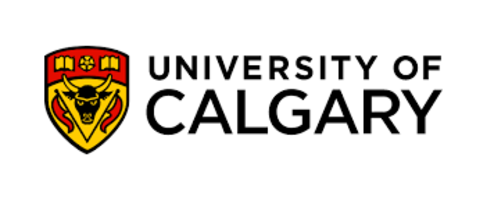
The Language and Cognitive Development Lab (PI: Dr. Susan Graham) invites applications for a Postdoctoral Researcher in the Department of Psychology in the Faculty of Arts at the University of Calgary.
- Duration: One year with possibility of renewal
- Start date: July 1
- Salary: $70 000 per year plus Alberta Blue Cross Plan C
Job Description:
The postdoctoral researcher will be expected to collaborate on lab projects and develop new lines of research related to concepts and categorization, word learning, predictors of language development, and social-referential communication. Some current projects in the lab examine how infants link properties with categories, how preschoolers use emotional prosody to infer communicative intent, preschoolers’ detection of emotional categories from prosody, and understanding the links between language skills and social competence. The lab has a well-established large participant database and uses a variety of methodologies, including eye-tracking, habituation paradigms, and behavioural testing. The lab also has access to data from a large-scale longitudinal study that focuses on determinants of child development and well-being. The postdoctoral researcher will be expected to develop an independent line of research and to collaborate on lab projects. More information about the lab is available at https://ucalgary.ca/labs/language-cognitive-development
Qualifications:
Candidates must have a Ph.D. or expect to receive a Ph.D. in Psychology by the start of the appointment. Experience conducting with eye-tracking research with young children is required. Applicants must also demonstrate strong scientific writing skills, and have a track record of scholarly activities including publication of research findings in reputable peer-reviewed journals and conference presentations.
Experience using R and with statistical methods like LME, mediation and moderation is an asset.
Application details:
Please email your application as a single .pdf document on or before May 30 at 11:59 PM MDT via email to susan.graham@ucalgary.ca
All applications must include:
- Statement of interest (limit 1 page) summarizing your relevant experience, career goals, and description of how postdoc training will contribute to these goals
- Curriculum Vitae
- Contact information for 2 to 3 referees who are familiar with your scholarly work
- Writing samples (published or unpublished) that best exemplify your scholarly work
Review of applications will begin on May 30th and continue until the position is filled.
Only those applicants selected for interviews will be contacted further. In accordance with Canadian Immigration requirements, priority will be given to Canadian citizens and permanent residents of Canada, although others are encouraged to apply.
Please review the Postdoc Eligibility Guidelines for more information prior to applying for this position.
About the University of Calgary
The University of Calgary is Canada’s leading next-generation university – a living, growing and youthful institution that embraces change and opportunity with a can-do attitude. Located in the nation’s most enterprising city, the university has reached its Eyes High goal to be recognized as one of Canada’s top five research universities, grounded in innovative learning and teaching and fully integrated with the community it both serves and leads. The University of Calgary inspires and supports discovery, creativity and innovation across all disciplines. For more information, visit ucalgary.ca.
Additional information
The terms and conditions of employment are covered under the UCalgary and PDAC Collective Agreement. To find out more about postdoctoral scholar program at the University of Calgary visit our Postdocs website.
About Calgary, Alberta
Calgary is one of the world's cleanest cities and has been named one of the world's most livable cities for years. Calgary is a city of leaders – in business, community, philanthropy and volunteerism. Calgarians benefit from the strongest economy in the nation and enjoy more days of sunshine per year than any other major Canadian city. Calgary is less than an hour’s drive from the Rocky Mountains and boasts the most extensive urban pathway and bikeway network in North America.
The University of Calgary recognizes that a diverse staff/faculty benefits and enriches the work, learning and research experiences of the entire campus and greater community. We are committed to removing barriers that have been historically encountered by some people in our society. We strive to recruit individuals who will further enhance our diversity and will support their professional success while they are here. We encourage all qualified applicants to apply, however preference will be given to Canadian citizens and permanent residents of Canada.
McMaster University: Postdoctoral Position, Human Visual Attention and Perception
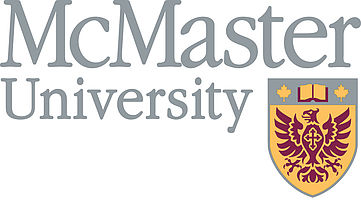
Applications are invited for a postdoctoral position in the Department of Psychology, Neuroscience and Behaviour at McMaster University. We are seeking highly qualified individuals to collaborate with Drs. Bruce Millken, Gabriel Xiao, and Hong-Jin Sun, on a project investigating experience-dependent effects on human visual attention and perception.
The candidate should have (or be in final stages of completing) a Ph.D. in a relevant field. Proficiency in programming is necessary and experience with eye-tracking is highly desirable. Experience with other techniques is also welcome. The successful candidate will also participate in a leadership and educational development program and will teach two undergraduate courses per year.
The position is available in September 2024. The initial appointment is for one year, with opportunity of renewal for two more years. Application (CV, three representative publications/manuscripts, and the names of three referees) should be submitted by April 17 to https://forms.gle/pSokfTdibG9QX3tf9
Concordia University & Brock University: Postdoctoral Fellow, Psycho/Neurolinguistics
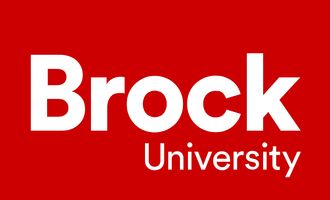
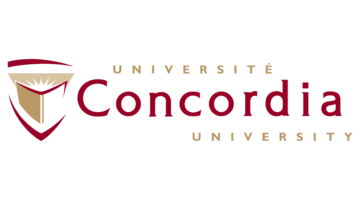
Postdoctoral position in psycholinguistic and neurolinguistic aspects of lexical processing
Supervisors:
Roberto G. de Almeida, Department of Psychology, Concordia University, Montreal, Quebec
Gary Libben, Departments of Applied Linguistics and Psychology, Brock University, St. Catherines, Ontario
PROGRAM DESCRIPTION:
We are seeking a postdoctoral fellow to work on projects investigating the comprehension of words, focusing on morphological processes, using behavioral and/or neuropsychological methods (e.g., aphasia testing). Current projects in our labs employ diverse behavioural, neuropsychological, and neuroimaging techniques as well as computational modeling. Ideally, the candidate will have a theoretical background in cognitive science with emphasis on linguistic levels such as morphology or lexical-semantics and with training in experimental work and aphasia. Experience with brain-imaging/recording (fMRI, ERP) techniques will be an asset. Aphasia research will be conducted in clinical settings affiliated with the Centre for Interdisciplinary Research in Rehabilitation of Greater Montreal (CRIR), at the Psycholinguistics Lab (Libben) and the Psycholinguistics and Cognition Lab (de Almeida). The postdoc will be working with a dynamic group of faculty, postdoctoral fellows, clinicians, and graduate students across two universities, and spanning diverse research settings.
For more information, please check
https://brocku.ca/social-sciences/applied-linguistics/people/gary-libben/
https://psycholinguistics.weebly.com/
ACADEMIC QUALIFICATIONS REQUIRED:
• PhD in Psychology, Neuroscience, Linguistics or other Cognitive Science related field.
• Preference will be given to candidates with experience in psycholinguistic / neurolinguistic methods and analysis tools.
TIMELINE:
• Applications will be reviewed starting November 15, 2023 and will continue until the position is filled; starting date is flexible, preferably early Winter 2024.
SUBMISSION PROCESS:
• All documents must be submitted to Gary Libben (gary.libben@brocku.ca) and Roberto G. de Almeida (roberto.dealmeida@concordia.ca); subject line: “postdoctoral application (1023)”.
• Please include the reference number with your application.
APPLICATION CHECKLIST:
• One to three (1-3) page research statement demonstrating fit with the research area as well as describing research interests and skills.
• Curriculum vitae
• Two letters of reference from academic supervisors or current employers to be sent via e-mail directly to both, Gary Libben (gary.libben@brocku.ca) and Roberto G. de Almeida (roberto.dealmeida@concordia.ca); subject line: postdoctoral application (1023) reference letter
SALARY:
This one-year position (renewable) is funded by grants from the Social Sciences and Humanities Research Council and the Natural Sciences and Engineering Research Council. Salary will be commensurate with experience.
University of British Columbia: Postdoctoral Fellow, Virtual Reality and Sexual Health

The UBC Sexual Health Research Laboratory at the University of British Columbia is hiring a two-year Postdoctoral Fellow to co-lead a clinical trial evaluating virtual reality exposure as a treatment for vaginismus. This project is funded by the Canadian Institutes of Health Research and the Fellow will join a multi-disciplinary team of clinicians, researchers, digital health experts, patient partners, a biostatistician, and several trainees. The Postdoctoral Fellow will be co-supervised by Dr. Lori Brotto and Dr. Alan Kingstone. Candidates with prior research experience in virtual reality, sexual health and difficulties, and those with strong methodological and statistical training will be prioritized.
Interested applicants should submit: (1) a cover letter indicating why there is a match between the applicant’s skillset and the job, the date they are available to start in 2024, and the names of 2-3 references; (2) a complete academic CV, and (3) a one-page summary of their research interests, including a brief description of their career plans. Apply by October 31, 2023 to Drs. Lori Brotto (lori.brotto@ubc.ca) or Alan Kingstone (alan.kingstone@ubc.ca). Review of applications will begin as of November 1, 2023.
University of Waterloo: Postdoctoral Fellow, Mind and Behaviour

The cognition group at the University of Waterloo Department of Psychology is inviting applications for one or more post-doctoral fellows. The position will provide significant autonomy for the fellow(s) to develop an independent research program that intersects with the interests of one or more scholars in the Waterloo cognitive and behavioural science community, which may include but need not be limited to Dr. Jonathan Fugelsang, Dr. Sam Johnson, Dr. Derek Koehler, and Dr. Evan Risko.
The fellow(s) will join an exciting departmental community of cognitive and behavioural scientists working in cognitive psychology, cognitive neuroscience, developmental psychology, and social psychology. Researchers in our group are especially focused on decision-making, reasoning, learning, memory, attention, and how these processes interface with other parts of the mind. We are seeking qualified individuals to collaborate on the development of new and exciting projects in any (or all) of these areas. Research tools available in the labs include eye tracking, psychophysiological recording, video recording, and virtual reality. The fellow will have the opportunity to forge ties not only with other Psychology faculty but with researchers across the University with shared interests in cognitive and behavioural sciences, such as scholars in economics, management sciences, philosophy, or our world-leading computer science and engineering departments. In addition to conducting and disseminating research, the successful candidate will also have opportunities to mentor graduate and undergraduate student researchers.
The successful candidate will have a Ph.D. in a field of cognitive or behavioural science (e.g., Psychology, Philosophy, Computer Science, Economics, Marketing), a strong record of research productivity, strong technical skills (e.g., statistics, programming), and a demonstrated ability to work independently and as a team member. We aim to build a team with diverse expertise; thus, applicants from the full range of methodological backgrounds are encouraged, including lab or field experiments, computational modelling, eye tracking, psychophysiological recording, virtual reality, econometrics, natural language processing, or ethnography. For more information on postdoctoral studies and on the University of Waterloo, see https://uwaterloo.ca/graduate-studies-postdoctoral-affairs/.
This is a one-year position with the possibility of renewal for a second year. Review of applications will begin on June 15th, 2023 and will continue until the position is filled. Start date will be on or around September 1, 2023. For inquiries, please email Sam Johnson (samuel.johnson@uwaterloo.ca). To apply, please send your CV, the expected date of availability, a short statement of research interests and experience, and contact information for three referees to Sam Johnson at samuel.johnson@uwaterloo.ca.
The University of Waterloo acknowledges that much of our work takes place on the traditional territory of the Neutral, Anishinaabeg and Haudenosaunee peoples. Our main campus is situated on the Haldimand Tract, the land granted to the Six Nations that includes six miles on each side of the Grand River. Our active work toward reconciliation takes place across our campuses through research, learning, teaching, and community building, and is co-ordinated within our Office of Indigenous Relations.
The University values the diverse and intersectional identities of its students, faculty, and staff. The University regards equity and diversity as an integral part of academic excellence and is committed to accessibility for all employees. The University of Waterloo seeks applicants who embrace our values of equity, anti-racism and inclusion. As such, we encourage applications from candidates who have been historically disadvantaged and marginalized, including applicants who identify as First Nations, Métis and/or Inuk (Inuit), Black, racialized, a person with a disability, women and/or 2SLGBTQ+.
All qualified candidates are encouraged to apply; however, Canadians and permanent residents will be given priority.
The University of Waterloo is committed to accessibility for persons with disabilities. If you have any application, interview, or workplace accommodation requests, please contact Sam Johnson (samuel.johnson@uwaterloo.ca)
McGill University: Postdoctoral Fellow, Neuroscience of Memory

The Sheldon Memory Lab { https://www.sheldonmemorylabatmcgill.com/ ] at McGill University is looking for a post-doctoral fellow to join our team!
The Sheldon Lab researches the cognitive and neural processes that support autobiographical memory, how these processes extend into non-memory scenarios like problem solving and how they are recruited differently across individual and populations (e.g., aging). We are looking for a post-doc who is highly motivated, curious and knowledgeable about the cognitive neuroscience of autobiographical memory and interested in working with a wonderful team of young researchers. The successful candidate will have a PhD in cognitive psychology or in a relevant field and will have experience with neuroimaging analysis, preferably fMRI. We are recruiting for a one-year term, however there may be the opportunity to renew the position based on grant funding and performance.
In this position, the post-doc will be able work on collecting and analyzing a dataset that will include fMRI data of younger adults learning and recalling complex autobiographical-like memories and individual differences measures. The post-doc will have the opportunity to extend data collection to other populations (aging) as well as design and conduct new experiments relevant to the focus of the lab. The post-doc will be encouraged to collaborate with researchers, take advantage of workshops on neuroimaging analysis, attend talk and conferences and apply for grants.
Review of applications will begin immediately and continue until the position is filled. For more information about this position, please contact Dr. Signy Sheldon { signy.sheldon@mcgill.ca }
McGill University is located in Montreal (Quebec Canada) and is a wonderful place to learn and live. It There are several research centers devoted to studying neuroscience that use innovative techniques and tools to answer important questions about topics like memory and Montreal is a diverse and vibrant city.
Toronto Metropolitan University: Postdoctoral Fellow, Memory and Decision Making
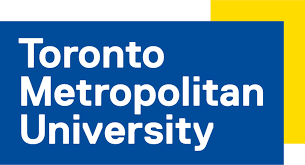
The Memory and Decision Processes Lab (PI: Dr. Julia Spaniol, sites.psychlabs.ryerson.ca/madlab/) in the
Department of Psychology at Toronto Metropolitan University (TMU) in Toronto, Canada, is seeking a full-time postdoctoral fellow to start in Spring or Summer of 2023.Members of groups that have been historically disadvantaged and marginalized, including First Nations, Métis and Inuit peoples, Indigenous peoples of North America, Black-identified persons, other racialized persons, persons with disabilities, and those who identify as 2SLGBTQ+, are especially encouraged to apply.
The postdoctoral fellow will join a collaborative and supportive lab that embraces equity, diversity, and inclusion, as well as open and transparent scientific practices.
The postdoctoral fellow will conduct research on motivation-cognition interactions in younger and older adults using a combination of approaches (e.g., behaviour, eye-tracking, electrophysiology, fMRI, computational modeling). The postdoc will work closely with the PI, graduate students, and undergraduate research assistants, and will have access to rich opportunities for research collaboration within and outside the Memory and Decision Processes Lab. The postdoc will prepare manuscripts for publication, present at conferences, and participate in grant writing. They will also have the opportunity to co-supervise students and research assistants. The postdoc will join a vibrant community of postdoctoral fellows at TMU, with access to professional development training to enhance career readiness for academia and industry. Salary will be $60,000/year plus benefits.
Required qualifications:
- PhD in cognitive psychology, cognitive neuroscience, or a related field
- A record of research productivity, as demonstrated through publications, presentations, and other forms of knowledge mobilization
- Excellent time-management, communication, and interpersonal skills
- Demonstrated ability to work independently and as part of a team
- Quantitative and programming skills (e.g., R, Matlab, Python)
- Strong interest in, and potential for, advancing equity, diversity and inclusion in psychological science
Additionally, prior experience with EEG, eye-tracking, or psychophysiological methods is desirable, as is experience working with community-dwelling older adults.
This is a one-year position with the possibility of renewal for a second year. Funding for the position comes from the Natural Sciences and Engineering Research Council (NSERC) and from the Canada Research Chair program. Interested candidates should submit a cover letter, CV, a representative publication or manuscript, and contact information for two references. Informal inquiries and application materials should be sent to Dr. Julia Spaniol (jspaniol@torontomu.ca). Review of applications will begin February 15, 2023. Applications received after this date will receive consideration until the position is filled.
Located in downtown Toronto, Toronto Metropolitan University is a distinctly urban, culturally diverse comprehensive university. The Department of Psychology at TMU has 39 full-time faculty members, 6 staff, ~1,000 full-time undergraduate students, 106 graduate students (MA and PhD), and 6 postdocs and research associates.
Applicants who identify as Black are encouraged to consider applying for one of 4 TMU-funded Postdoctoral Fellowships for Black Scholars, valued at $70,000/year plus benefits.
All qualified candidates are encouraged to apply but applications from Canadians and permanent residents will be given priority.
Western University: Three Postdoctoral Fellowships, Neuroscience
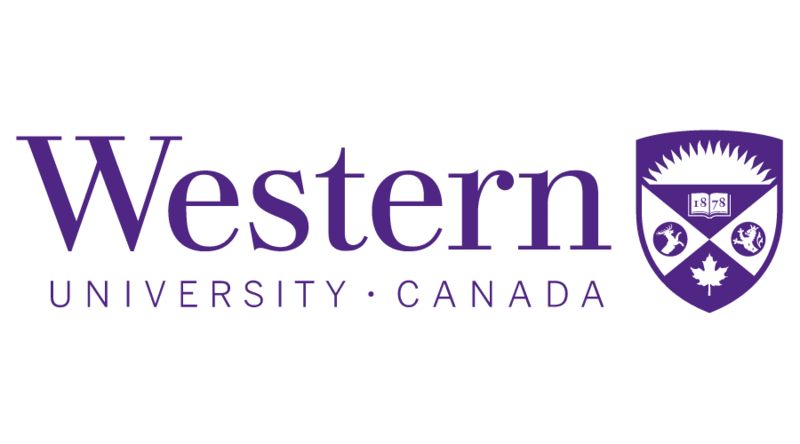
The Translational Cognitive Neuroscience Lab at Western University (co-directed by Tim Bussey and Lisa Saksida) is looking for three postdoctoral researchers to undertake cutting-edge research in the area of brain mechanisms of cognition and behaviour.
Please visit the postdoctoral job opportunities page on our website for additional details on these and other available positions.
McMaster University: Postdoctoral Fellowship, Neuroscience of Self-Other Processing
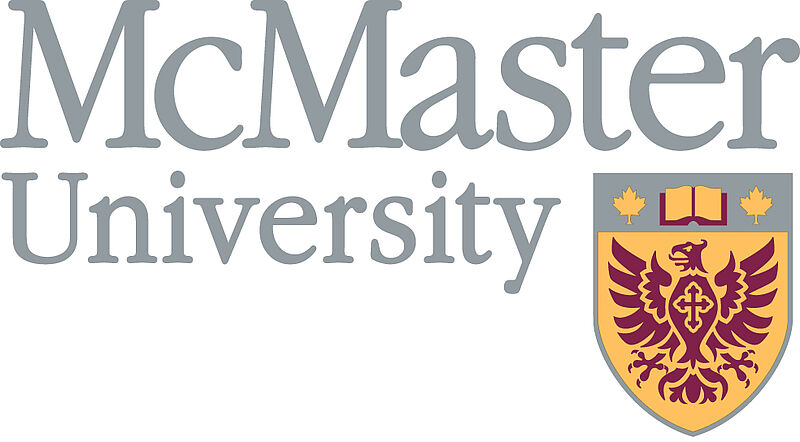
Applications are invited for a Postdoctoral fellowship to work with Professor Sukhvinder Obhi at McMaster University in Ontario, Canada. The appointment is initially for two-years and the research focus is on self-other processing (broadly defined) in the context of social hierarchies, including a focus on key themes of power and social diversity. Research in the lab employs a combination of cognitive neuroscience and social psychological methods and approaches. The ideal candidate will have a PhD in Social Cognitive Neuroscience (or similar) and have expertise in any, or preferably all, the following: electroencephalography (EEG), transcranial magnetic stimulation (TMS), experimental design, data processing and statistical analysis, and programming for experiment creation, for example using Python, MATLAB, or similar. In addition, high quality writing and communication skills are critical as is the ability to work independently and as part of a team. Alongside their own research, this position will involve the postdoctoral fellow day to day mentoring activities of more junior students and trainees in the lab. Applicants with similar but not exactly matching interests are also encouraged to apply.
McMaster University is consistently ranked as one of Canada’s top research-intensive universities, and one of the top 100 universities in the world. The University is located on a scenic 300-acre campus in Hamilton, Ontario, which enjoys the reputation of being Canada’s waterfall capital. Hamilton is a thriving, cosmopolitan city with a population of well over 500,000, and is located less than an hour from Toronto, and an hour from the Canada/US border.
Interested applicants should send a cover letter, current CV, and a list of 3 references to Dr. Sukhvinder Obhi at: obhi@mcmaster.ca
McMaster University: Postdoctoral Fellowship, Education & Cognition

Applicants are invited to apply for the McCall-MacBain Postdoctoral Fellowship in Education and Cognition, to work with Drs. Joe Kim and Faria Sana in the Department of Psychology, Neuroscience & Behaviour at McMaster University in Canada, starting July 1, 2023 (an earlier or deferred start date is negotiable). This is a three-year position with a competitive annual salary, research stipend, and benefits.
Research in the Education and Cognition Lab (http://edcog.ca) focuses on the application of cognitive principles to inform instructional design, training and education. Lab facilities include the LIVELab (http://livelab.mcmaster.ca) for exploring physiological measures in an authentic learning environment.
Candidates for the position should have completed their PhD, and must have a high degree of expertise in cognition (attention, memory learning), strong programming and statistical analysis skills and interests in application of research to education. Other preferable skills (but not required) include experience in eye-tracking, cognitive and behavioural testing, and EEG. Experimental design and communication skills appropriate for a Cognition/Experimental Psychology PhD graduate are also expected.
Applicants should be comfortable working in a team environment, and the successful candidate will mentor and provide day-to-day assistance to more junior members of the lab, and actively participate in the new McCall MacBain Postdoctoral Fellows Teaching and Leadership Program. The primary research location will be in the Department of Psychology, Neuroscience & Behaviour at McMaster University. The Fellow will have the opportunity to take part in foundational, applied, and collaborative research projects with an active core cognition group in the department and pedagogy researchers in the university.
McMaster University is consistently ranked as one of Canada’s top research-intensive universities, and one of the top 100 universities in the world. The University is located on a scenic 300-acre campus in Hamilton, Ontario, which enjoys the reputation of being Canada’s waterfall capital. Hamilton is a thriving, cosmopolitan city with a population of well over 500,000, and is located less than an hour from Toronto, and an hour from the Canada/US border.
This is a CUPE Local 3906, Unit 3 Collective Agreement Posting.
Interested applicants should send a CV, details of three referees, and a cover letter stating relevant background and experience, as well as future goals, to Dr. Joe Kim at: kimjoe@mcmaster.ca
We will begin reviewing applications immediately.
McMaster University is strongly committed to employment equity within its community and to recruiting a diverse faculty and staff. The University encourages applications from all qualified candidates including women, persons with disabilities, First Nations, Métis, and Inuit persons, members of racialized communities and LGBTQ-identified persons.
Multiple Sites: Postdoctoral Fellowship, Hidden Binocularity

Principle Investigators:
Xiaoquing Gao, Haotian Lin, Daphne Maurer, Ewa Niechwiej-Szewdo, David Shore, Ben Thompson, Agnes Wong
We are seeking an outstanding postdoctoral fellow to lead this CIHR-funded project. Our
interdisciplinary project has two unique cohorts of patients, one in China and one in Canada. We
use psychophysical approaches to explore binocular visual function along with eye and limb
tracking to expose a relation between residual visual function and visuomotor coordination. The
team brings together expertise in vision, multisensory perception, motor systems, development,
visual impairments, and clinical treatment.
The successful candidate will coordinate participant recruitment and data collection across
multiple sites (U of Waterloo, McMaster, SickKids Toronto) for several already planned
experiments that assess binocularity and visuomotor function. Simultaneously, the candidate will
work with the research team to design new experimental paradigms to understand multisensory
reorganization and the potential contribution of visual and haptic feedback during reaching and
grasping in rehabilitation. Prior experience in designing and conducting psychophysical
experiments and/or collection and analysis of human kinematics is essential; no prior background
in deprivation amblyopia is expected.
The position is initially for one year, with an expectation of renewal for up to four more. The
position is fully funded and salary is commensurate with experience. We hope to start the
position November 1, 2022 and will interview candidates as applications are received. We are
strongly committed to diversity on our research team and especially welcome applications from
racialized persons / persons of colour, women, Indigenous / Aboriginal People of North America,
persons with disabilities, LGBTQ2S+ persons, and others who may contribute to the further
diversification of team.
To apply, please send a cover letter, your cv, and a list of three references that we can contact to
David I. Shore <multisensory@mcmaster.ca> . Pre-submission inquiries welcome.
Alberta Gambling Research Institute: Postdoctoral Fellowship
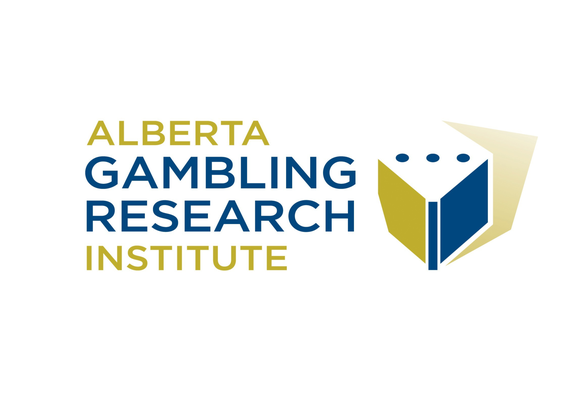
The Alberta Gambling Research Institute (AGRI) is a consortium of three Alberta Universities: the University of Alberta in Edmonton, the University of Calgary, and the University of Lethbridge. AGRI supports investigations into all aspects of gambling research (https://research.ucalgary.ca/alberta-gambling-research-institute).
AGRI is offering Post-Doctoral Fellowships with the call for applications now open. Guidelines and the application form may be found at: https://research.ucalgary.ca/alberta-gambling-research-institute/apply-grants/post-doctoral-fellowships.
Western University: Postdoctoral Fellowship in Neural Correlates of Misophonia

Our team in the neuroplasticity in sensory systems lab at Western University in London, Ontario, Canada is recruiting a postdoctoral scholar to examine how contextual cues impact the experience of Misophonia in naturalistic listening environments. This project will combine state-of-the-art multisensory virtual environments with high-density EEG in an effort to better understand the brain regions and neural dynamics involved in adverse responses to trigger sounds.The successful candidate should have a PhD in psychology, neuroscience, communication sciences, or a related discipline, with evidence of the ability to conduct independent research. Additionally, quantitative & programming skills in Python, MATLAB or similar are expected. Specifically, expertise in frequency-domain analyses of EEG data would be considered an asset.
This is a fully-funded 2-year fellowship with the possibility of extension beyond that period. Our lab is in the Department of Psychology and is a part of the highly productive and interdisciplinary Western Institute for Neuroscience. We strongly value principles of open science, and are firmly committed to supporting equity, diversity, and inclusivity in neuroscience – individuals from underrepresented groups are strongly encouraged to apply.
Interested applicants should submit a cover letter, CV, and the contact information for two referees by email to Dr. Blake Butler at bbutler9@uwo.ca. Review of applications will begin October 1 and will continue until the position has been filled - please email with any questions you might have!
Kwantlen Polytechnic University: Postdoctoral Position, Lifespan Cognition
The Lifespan Cognition Lab at Kwantlen Polytechnic University, located in Metro Vancouver, Canada is looking to hire a post-doctoral fellow for up to 2 years. We are currently conducting longitudinal and cross-sectional studies of perspective taking, executive function, decision making, false memory, and metacognition from preschool to old age. While the start date is flexible, we hope to fill this position by September 1, 2022. This is a full-time position that will initially be set to a one-year contract with the possibility to renew the contract for one additional year. Salary is $55,000 Cdn. per year. Interested applicants should apply here.
McGill University: Postdoctoral Position, Attention & Social Cognition

Attention & Social Cognition group at the Department of Psychology, McGill University (http://www.mcgill.ca/asc) directed by Professor Jelena Ristic anticipates an opening for a postdoctoral researcher starting as early as Fall of 2022.
We are seeking qualified individuals to collaborate and develop projects on the topics of human attention, social cognition, and interactive (group) cognition using behavioral, neuroimaging (EEG), and eye tracking methods. The A&SC group is a vibrant team of postdoctoral, visiting, graduate, and undergraduate researchers and houses dedicated equipment for investigating attention and social interactive behaviors including the dual TOBII eye tracking eyeglasses, an SR Research EyeLink eye tracker, and a 64-channel BioSemi EEG system.
The candidate should have a PhD in Psychology or a related field (e.g., Cognitive Science, Neuroscience), experience with programming (e.g., Matlab, Python, R), and EEG and/or eye tracking methodologies. The initial appointment will be made for one year. Salary will be according to McGill guidelines.
Along with the Department of Psychology, the MNI and other satellite institutes in the area, the students within the A&SC lab are uniquely affiliated with the NSERC-CREATE network in complex dynamics of biological systems (https://cd-create.org/home) and the HBHL initiative (https://www.mcgill.ca/hbhl/), both of whom provide multiple networking, training, career, and funding opportunities.
For inquiries, please email jelena.ristic@mcgill.ca. To apply, please send your CV, the expected date of availability, a short statement of research interests, and contact information for three referees to jelena.ristic@mcgill.ca
Université Laval: Stage postdoctoral / Postdoctoral position, Émotion, Cognition & Trauma / Emotion, Cognition & Trauma
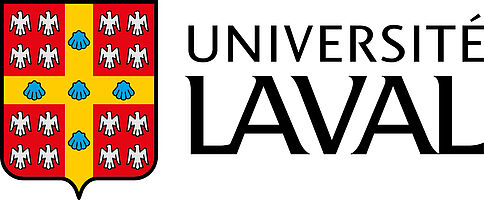
Le laboratoire Cogité, dirigée par la professeure Isabelle Blanchette est à la recherche d’un·e stagiaire postdoctoral·e.
Présentation du projet
Ce stage postdoctoral s’effectuera dans le cadre d’un projet de recherche qui explore le lien entre trauma et cognition. Une étude longitudinale est en cours qui examine de façon prospective si la survenue d’événements potentiellement traumatiques impacte certaines fonctions cognitives incluant la mémoire de travail, l’attention et le raisonnement. L’étude mesure aussi l’effet de différences cognitives et psychophysiologiques préexistantes sur les trajectoires suite à l’exposition traumatique. Des cohortes universitaires, de premier·e·s répondant·e·s et de participant·e·s tout-venant sont suivies sur une période de cinq ans pour examiner ces questions. Le stage consistera principalement en l’analyse de données déjà collectées.
Conditions
Traitement : salaire annualisé 45 000$
Contrat de 35h/semaine, un an, renouvelable une fois.
L’équipe fait partie du Centre de recherche CERVO (https://cervo.ulaval.ca). Le CERVO regroupe une soixantaine de chercheur·es dirigeant des équipes de recherche totalisant plus de 400 personnes, offrant une expertise multidisciplinaire, allant de la biophysique membranaire à l’intervention sociale, en passant par la psychologie et la cognition. Les espaces de recherche du CERVO incluent l’accès à un ensemble de techniques spécialisées (traquage oculaire, psychophysiologie, EEG, TMS).
Tâches
Les principales tâches du/de la stagiaire seront :
- Traitement et analyse de données comportementales et psychophysiologiques;
- Rédaction d’articles scientifiques;
- Soutien à l’encadrement d’étudiant·e·s de premier cycle et de cycles supérieurs;
- Gestion des auxiliaires de recherche travaillant sur le projet;
- Organisation de collectes de données et mise en place des actions visant la rétention des participants;
- Développement d’études expérimentales parallèles à l’étude longitudinale.
Qualifications
- PhD dans un domaine pertinent (psychologie, neurosciences, etc.);
- Excellentes connaissances en psychologie expérimentale, préférablement avec une expertise dans le domaine de la cognition et/ou des émotions;
- Expertise et autonomie dans le traitement et l’analyse de données; maîtrise des logiciels pertinents (Jamovi, R, Matlab ou Python);
- Connaissance de techniques statistiques avancées (modèles linéaire mixtes, analyses trajectoires, modèles autorégressifs croisés, etc.) un atout;
- Expérience dans l’analyse de données psychophysiologiques un atout;
- Excellentes habiletés de rédaction scientifique, en anglais comme en français;
- Bonnes capacités d’organisation et aptitude à travailler de façon indépendante;
- Aptitudes pour le travail d’équipe et habiletés nécessaires pour participer à l’encadrement d’étudiant·es.
Pour postuler
Veuillez envoyer une lettre de présentation ainsi qu’un CV, exemples (2 ou 3) de vos publications scientifiques et les coordonnées de deux personnes référence (en un seul document pdf) à l’adresse suivante : Isabelle.blanchette@psy.ulaval.ca
Les citoyens de tous les pays sont éligibles pour le poste, suivant l’obtention des visas nécessaires.
Les candidatures seront évaluées à partir du 1 er avril 2022 jusqu’à ce que le poste soit comblé. La date d’entrée en fonction souhaitée est le 1er septembre 2022.
The Cogité research team, headed by professor Isabelle Blanchette at Université Laval (Québec city), is hoping to recruit a postdoctoral researcher
Project
This postdoctoral fellowship will be part of a research project that explores the link between trauma and cognition. A longitudinal study is underway that prospectively examines whether the occurrence of potentially traumatic events impacts certain cognitive functions including working memory, attention and reasoning. The study also measures the effect of pre-existing cognitive and psychophysiological differences on trajectories following traumatic exposure. Cohorts of university students, first respondents and participants from the general population are monitored over a period of five years to examine these issues. The internship will mainly involve analyzing data already collected.
Conditions
Annual salary 45 000$CA
35h/week for one year, renewable once.
Main Tasks
- Data analysis
- Manuscript preparation
- Management of ongoing data collection & research assistants
- Supervision and support of undergraduate and graduate students
- Develop and carry out experimental studies in line with longitudinal work
Qualifications
- PhD in relevant domain (psychology, neuroscience, etc.)
- Background in experimental psychology, ideally with knowledge of cognition and/or emotion
- Strong statistical skills, including ability to work with relevant data processing and analysis software such as R, Jamovi, Matlab or Python
- Experience with advanced statistical techniques (linear mixed effects models, cross lagged models, etc.)
- Excellent writing skills
- Conversational level in French (or willingness to learn) an asset
- Demonstrated resourcefulness, adaptability and ability to work independently and solve problems
- Ability to work as part of team and mentor students
Description of Université Laval and Québec city
Université Laval was founded in 1852 and is among the top ten research universities in Canada (8th in 2018). It welcomes 43 000 students across 17 faculties and more than 60 departments, schools and institutes.
Université Laval welcomes nearly 43,000 students in 17 faculties and more than 60 departments, schools and institutes. Founded in 1852, it is the oldest French-language institution of higher education in America and the sixth oldest university in Canada. Université Laval now ranks 8th among the largest research universities in the country with $375M in research funding. The School of Psychology brings together researchers working in diverse fields: neuroscience, clinical psychology, basic and applied cognitive psychology, social psychology.
The team is part of the CERVO Research Centre (https://cervo.ulaval.ca). CERVO brings together about sixty PIs and more than 400 people, offering multidisciplinary expertise, ranging from membrane biophysics to social intervention, psychology and cognition. CERVO's research spaces include access to specialized equipment in neuroscience (eye tracking, psychophysiology, MRI, EEG).
Québec city is one of the oldest cities in North America. It is the second largest city in the province of Québec, with a population of 530 000. 94% of the population is French speaking. It is one of the safest cities in the world with a very low crime rate. Stepped in history and culture, it is visited by nearly five million tourists each year. The city is very festive and boasts a dynamic cultural scene. There are numerous museums and historical sites, including the Musée National des Beaux-Arts du Québec, Musée de la Civilisation, la Citadelle de Québec and the Château Frontenac. Québec city provides easy access to nature and sports facilities, including 315km of cycling paths, 200km of walking/hiking trails.
Application
Interested candidates should send a statement of interest, a CV, examples of publications (max 3) and the names and details of two references (in one pdf document) to: isabelle.blanchette@psy.ulaval.ca.
Citizens of all countries are eligible, upon obtaining the required visas.
Review of applications will begin 1st April 2022 and will continue until position is filled. Expected start date is Sept 2022.
Concordia University: Two Postdoctoral Positions, Psycholinguistics and Cognition

POSTDOC POSITION 1:
Research program title: The mapping between linguistic and conceptual representations
Reference number: 32022
Supervisor: Roberto G. de Almeida, Department of Psychology, Concordia University
Program description:
We are seeking a postdoctoral fellow to work on projects investigating the mapping between linguistic and conceptual representations, employing a variety of experimental techniques. Projects include the representation of verb meaning, visual word recognition, category-specific semantic deficits, and the mapping between words and objects, as well as between sentences and events/dynamic scenes. Candidates should have a strong background in cognitive science and expertise in behavioral and/or neuroimaging techniques employed in psycholinguistics and cognitive neuroscience. Candidates with experience conducting research with clinical populations (e.g., aphasia, agnosia) are also encouraged to apply.
For ongoing projects in the lab please see https://psycholinguistics.weebly.com/
This position is supported by grants from SSHRC and NSERC. The position is for one year with the possibility of renewal. Salary will be commensurate with experience. Review of applications will begin on February 15, 2022. Starting date: flexible but no later than August 31, 2022.
Requirements and instructions for applying are provided below and are similar for both positions. Candidates should make sure to include the reference number in the application materials and provide the application number to referees.
POSTDOC POSITION 2:
Research program title: The neurocognitive bases of semantic and pragmatic composition
Reference number: 10002b
Supervisor: Roberto G. de Almeida, Department of Psychology, Concordia University
Program description:
We are seeking a postdoctoral fellow to work on projects investigating the comprehension of sentences that are either ‘indeterminate' or are deemed ‘figurative', and thus may require contextual enrichment. The projects employ diverse behavioural and neuro-imaging techniques as well as computational modelling. Ideally the candidate will have theoretical background in cognitive science with emphasis on semantics/pragmatics and with experimental work in brain-imaging/recording (fMRI, ERP) techniques.
Experience with computational modeling involving Recurrent Neural Networks (RNN) is an asset. Other resources (e.g., clinical populations, MEG, eye-tracking) are also available at Concordia or other institutions in the Montreal area.
Academic qualifications required:
PhD in Psychology, Neuroscience, or other Cognitive Science related field.
Horizon Postdoctoral Fellow Eligibility requirements:
• Applicants must not currently hold a postdoctoral appointment at Concordia
• Priority will be given to postdoctoral fellows who have obtained their PhD from another university although in exceptional cases Concordia graduates may be considered
• Applicants must adhere to the postdoctoral fellow eligibility criteria outlined in Concordia University’s Postdoctoral Policy
Timeline:
Applications will be reviewed starting February 15 and will continue until the position is filled; starting date is flexible, preferably in the Spring or early Summer 2022; however, following the fellowship rules, the Horizon Postdoctoral Fellow must start their appointment by August 31, 2022.
Value:
The prestigious two-year Horizon Postdoctoral Fellowships are valued at $50,000 per year plus benefits and full access to Concordia’s services, including GradProSkills.
https://www.concordia.ca/sgs/postdoctoral-fellows/funding/horizon/descriptions/10002.html
Submission process for both positions:
• All documents must be submitted to Roberto G. de Almeida (roberto.dealmeida@concordia.ca); subject line: postdoctoral application (10002b) or (32022)
• Please include the reference number with your application
Application checklist for both positions:
• One to three (1-3) page research statement demonstrating fit with one of the programs described above
• Current curriculum vitae demonstrating research excellence and a capacity for leadership in the domain (maximum 5 pages)
• Two letters of reference from academic supervisors or current employers to be sent via e-mail directly to: Roberto G. de Almeida (roberto.dealmeida@concordia.ca); subject line: postdoctoral application reference ((32022) or (10002b))
Concordia University is a vibrant research and teaching environment, with state-of-the-art research facilities and many research centers. Concordia is located in Montreal, Canada, a diverse and creative city, often ranked as offering one of the best quality of living experiences in North America. Concordia University is committed to Employment Equity and encourages applications from women, Aboriginal Peoples, visible minorities, ethnic minorities, and persons with disabilities.
McGill University: Postdoctoral Fellowship in Emotion Communication in Parent-Infant Interaction

The McGill Infant Speech Perception lab and the Neuropragmatics and Emotion lab at McGill University are searching for a creative scientist to help spearhead a SSHRC-funded research project on the role of affect in infant development. This postdoctoral researcher will collaborate on a full-time basis with Dr. Linda Polka and Dr. Marc Pell to understand how infants process affective messages. The core project involves recording parent-infant interactions sessions and gathering requisite perceptual and facial movement data (using Baby FaceReader) to index affective messages. This is an opportunity to play a key role in generating a unique set of research materials and developing new testing methods to explore the broader role of affect in infant development. The chosen candidate will play a leading role in experimental design and setup, participant testing, data analyses, trainee supervision, and study oversight and will participate actively in the dissemination of the research (preparation of journal articles, conference presentations).
Qualifications: PhD in Psychology (or related field) with interest in developing research expertise in caregiver-infant interaction, human facial expressive behavior and/or face processing; 2) strong leadership, technical, and written communication skills in English 3) previous experience involving developmental populations and/or conducting facial movement analysis (e.g., FACS) is an asset.
This position does not involve classroom teaching, but the candidate will help to provide research training through organized workshops (e.g., to members of the Centre for Research on Brain, Language and Music) and by co-supervising undergraduate and/or graduate research trainees working on the project.
This 2-year position offers independence as well as important opportunities for collaboration in the school and as a member of the McGill Centre for Research on Brain, Language and Music (www.crblm.ca). Starting date is flexible but projected for September 1, 2022.
Candidates should provide a CV demonstrating evidence of research productivity, a one page statement of outlining their research expertise and intent, and names of two individuals who would be willing to provide a letter of recommendation (with their contact information).
McGill University is situated in the heart of Montréal, Canada, a vibrant city and the metropolis of Québec. Language, and neuroscience are both strategic research priorities at McGill which has gained an enviable reputation in this domain. For information about postdoctoral studies at McGill, see www.mcgill.ca/gps/postdocs
Inquiries should be sent directly to Dr. Linda Polka (linda.polka@mcgill.ca).
University of Regina / MIT: Postdoctoral Fellowship in Metacognition, Intellectual Humility, and Belief
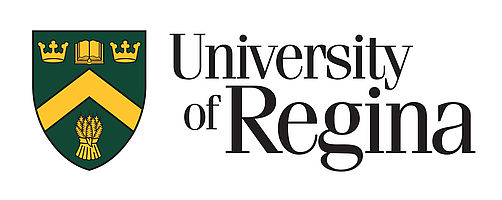
Gordon Pennycook’s Behavioral Science Lab at the Hill/Levene Schools of Business (University of Regina) and David Rand’s Human Cooperation Lab at the Sloan School of Management (MIT) are seeking a postdoctoral researcher to begin summer 2022 (or sooner), for two years (with the possibility of extending, depending on funding). Fellows will design and run research studies, analyze data, prepare publications, etc. The grant, which is funded by the John Templeton Foundation, focuses on understanding why beliefs (and confidence) varies so much across people. The successful applicant will be physically housed at the UofR (with allowances for work-from-home arrangements), but there will be substantial intellectual integration across the two labs (e.g. weekly joint lab meetings, research visits to the other location when appropriate, etc.).
Potential assets for applicants include experience with lab/online experiments, strong writing skills, and knowledge of fields such as judgment and decision-making, cognitive psychology, social psychology, and/or political psychology.
Ideal candidates would be creative, independent, articulate, and deeply engaged in questions related to human decision-making (or associated topics). Funds for conducting experiments will be available to the fellow, as well as the many opportunities for outside collaboration. Our lab culture aims to advance our scientific understanding by fostering open discussion and debate, and rewarding originality and vision. Compensation is $60,000 (CAD) per year with support for equipment and travel.
Individuals with a Ph.D., or those expecting to complete their Ph.D. by summer 2022, are encouraged to apply. We will begin to evaluate applications on October 31st and will continue to review applications on a rolling basis until the position is filled. If you are interested, please apply – no need to email inquiring as to whether the position is still available!
Please send a CV, statement of interest (two pages max), and up to 3 reprints/preprints to: pennycook.behscilab@gmail.com. Also, list up to 3 referees but do not send reference letters. We will contact referees for shortlisted candidates.
The University of Regina is committed to an inclusive workplace that reflects the richness of the community that we serve. The University welcomes applications from all qualified individuals, including individuals within the University's employment equity categories of women, persons with disabilities, members of visible minorities, aboriginal persons, individuals of diverse gender and sexual orientation, and all groups protected by the Human Rights Code. MIT is an equal opportunity employer committed to building a culturally diverse intellectual community, and strongly encourages applications from women and underrepresented minorities.
Concordia University: Postdoctoral Fellow, Semantics / Pragmatics (Neuroimaging, Modeling)

Research program title: The neurocognitive bases of semantic and pragmatic composition
Reference number: 10002
Supervisor: Roberto G. de Almeida, Department of Psychology, Concordia University
Program description:
We are seeking a postdoctoral fellow to work on projects investigating the comprehension of sentences that are either ‘indeterminate' or are deemed ‘figurative', and thus may require contextual enrichment. The projects employ diverse behavioural and neuro-imaging techniques as well as computational modeling. Ideally the candidate will have theoretical background in cognitive science with emphasis on semantics/pragmatics and with experimental work in brain-imaging/recording (fMRI, ERP) techniques.
Experience with computational modeling involving Recurrent Neural Networks (RNN) is an asset. Other resources (e.g., clinical populations, MEG) are also available at Concordia or other institutions in the Montreal area.
Academic qualifications required:
PhD in Psychology, Neuroscience, or other Cognitive Science related field.
Eligibility requirements:
- Applicants must not currently hold a postdoctoral appointment at Concordia
- Priority will be given to postdoctoral fellows who have obtained their PhD from another university although in exceptional cases Concordia graduates may be considered
- Applicants must adhere to the postdoctoral fellow eligibility criteria outlined in Concordia University’s Postdoctoral Policy
Timeline:
Applications will be reviewed starting September 1, 2021 and will continue until the position is filled; starting date is flexible, preferably in the Fall of 2021; however, following the fellowship rules, the Postdoctoral Fellow must start their appointment by August 31, 2022.
Submission process:
- All documents must be submitted to Roberto G. de Almeida (roberto.dealmeida@concordia.ca); subject line: postdoctoral application (10002)
- Please include the reference number with your application
Application checklist:
- One to three (1-3) page research statement demonstrating fit with the program described above
- Current curriculum vitae demonstrating research excellence and a capacity for leadership in the domain (maximum 5 pages)
- Two letters of reference from academic supervisors or current employers to be sent via e-mail directly to: Roberto G. de Almeida (roberto.dealmeida@concordia.ca); subject line: postdoctoral application (10002) reference
Value:
The prestigious two-year Horizon Postdoctoral Fellowships are valued at $50,000 per year plus benefits and full access to Concordia’s services, including GradProSkills.
Concordia University is a vibrant research and teaching environment, with state-of-the-art research facilities and many research centers. Concordia is located in Montreal, Canada, a diverse and creative city, often ranked as offering one of the best quality of living experiences in North America. Concordia University is committed to Employment Equity and encourages applications from women, Aboriginal Peoples, visible minorities, ethnic minorities, and persons with disabilities.
https://www.concordia.ca/sgs/postdoctoral-fellows/funding/horizon/descriptions/10002.html
McGill University: Postdoctoral Fellow, App-Based Learning

Applications are invited for a postdoctoral researcher position at McGill University in Québec, Canada. The postdoctoral researcher will be supervised by Adam K. Dubé, Director of the Technology, Learning, & Cognition Lab (mcgill.ca/tlc), in the Department of Educational and Counselling Psychology. The initial appointment will be for one year, but may be renewed for a second year based on performance and interest.
The TLC lab is comprised of a diverse group of international scholars studying educational technology broadly (e.g., game-based learning, children’s interactions with digital assistants, 3D printing,)and mathematical cognition. This work is done with leading industry partners from both Montreal (Ubisoft, Ululab) and abroad (StarFall, ZapZap Math).
Substantive Focus and Responsibilities
The research program will conduct a comprehensive evaluation of the effectiveness of math apps designed for children 5-10yrs of age by:
- investigating the creative context in which math apps are made by studying how app developers’ personal pedagogies and the development process shape the math apps children use;
- studying the home context in which math apps are chosen by parents and used by children;
- studying the school context in which math apps are chosen and used by teachers.
Ideally, the postdoctoral researcher will focus on the creative context of the project but will also conduct research in the other context areas. Educational apps outside mathematics can be studied, based on the applicant’s interest.
Full Job Posting: http://bit.ly/TLCpostdoc
University of Manitoba: Postdoctoral Fellow, Computational Modelling / Memory
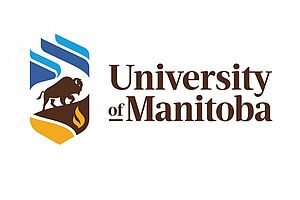
The Cognitive Science Laboratory at the University of Manitoba invites applications for a postdoctoral researcher to help develop and test computational models of cognition and memory in relation to knowledge representation and decision making.
The position will be full time with an initial appointment of 1 year and possibility of renewal. Salary will be $40,000/year plus benefits according to University of Manitoba guidelines. Start date is flexible.
Applicants must have a PhD in cognitive psychology or cognitive science. The preferred candidate will have the following qualifications:
- Experience and skills in computational modelling of cognitive and memorial processes
- Experience and skills in experimental design and online data collection
- Strong writing skills
- An interest in instance/exemplar-based approaches to understanding cognition
Interested individuals can apply by emailing a cover letter, CV, copies of relevant publications, and contact information for two referees. Applications and/or questions can be emailed to Randy Jamieson at randy.jamieson@umanitoba.ca.
Review of applications will begin immediately and continue until the position is filled.
Randall K. Jamieson, Ph.D.
Department of Psychology
University of Manitoba
Winnipeg, MB, Canada
Laboratory website: https://umcognitivesciencelaboratory.weebly.com
The University of Manitoba is strongly committed to equity and diversity within its community and especially welcomes applications from women, racialized persons, Indigenous peoples, persons with disabilities, persons of all sexual orientations and genders, and others who may contribute to the further diversification of ideas. All qualified candidates are encouraged to apply.
University of Waterloo: Postdoctoral Fellow, Experimental Quantum Neuroscience

The Quantum Neuroscience research group at the University of Waterloo, Canada is seeking an outstanding applicant for a Post-Doctoral Fellowship with experience in electrophysiology and molecular neuroscience.
Motivated by growing interest in the possibility that quantum effects may be at play in neuroscience, the University of Waterloo Quantum Neuroscience research group is aiming to find experimental evidence of novel quantum effects across established mammalian models used in experimental neuroscience. Specifically, the project will focus on studying the effects lithium isotopes may have on the electrophysiological activity of rodent-derived brain tissue. The demonstration of a lithium isotope effect in brain activity will be of great interest in helping to shed light on its mode of action. Of particular interest, a lithium isotope effect on animal behaviour was previously reported by Sechzer et al. [DOI:10.1016/0006-3223(86)90308-2] and, more recently, by Ettenberg et al. [DOI:10.1016/j.pbb.2020.172875]. In addition, the Waterloo Team recently obtained experimental evidence for a lithium isotope effect on electrical responses of rodent brain tissue. The post-doctoral fellow will extend this work using electrophysiology and other biochemical and biophysical methods.
The Waterloo Quantum Neuroscience research team consists of four faculty members: Zoya Leonenko, Michel Gingras, John Mielke and Michael Beazely and 12 undergraduate and graduate students. The team adopts an interdisciplinary approach that brings together expertise in theoretical physics, experimental biophysics, molecular pharmacology and neuroscience. The Waterloo team is part of the International Quantum Brain Network and works on this project in collaboration with Matthew Fisher at the University of California at Santa Barbara and four other research laboratories and is funded by an industrial pharmaceutical partner.
As a part of this project, we are seeking a post-doctoral level scientist with the following key characteristics and skills:
- neuroscience-related, or biophysics doctoral degree
- demonstrated expertise in the recording of field potentials (ideally, using multi-electrode arrays)
- demonstrated research excellence in publications and presentations
- well-developed ability to write in English
- strong ability to work effectively within an inter-disciplinary team (involving biologists, physicists, and trainees at all levels)
- detail-oriented with strong organizational skills
- expertise with statistical tools typically used in biophysics and medical science
- training in basic molecular biology techniques (such as Western blotting) is a plus
Expected duties and responsibilities:
a) design and execute experiments
b) work with team members to identify experimental goals and the research plans needed to reach these targets
c) use a multi-electrode array (MED64) to perform field recording experiments from tissue slices acutely prepared from rodent brain
d) analyze and present data, prepare written reports, and manuscript drafts
e) analyze and present data for regular lab meetings
f) present results (in poster, or oral form) at scientific meetings
g) mentor junior trainees
h) serve as a role model for junior-level trainees by providing constructive feedback and maintaining a friendly disposition
The position is initially for a 12-month appointment, with the possibility of renewal for up to three years, depending on performance. Applications will be considered until a suitable applicant is found. The start date can be as early as May 1, 2021.
To apply, please send a cover letter (2 pages maximum), a CV (including your education, scientific skills, your research experience and list of publications) and contact information for at least three senior researchers familiar with your research credentials and expertise who could provide a letter of reference on your behalf.
Please send your application by email to: qneuro.uwaterloo@gmail.com with subject line: PDF Applicant QNeuro; Last name, First name.
Université Grenoble Alpes: Postdoctoral Fellowship, Cognitive Modelling
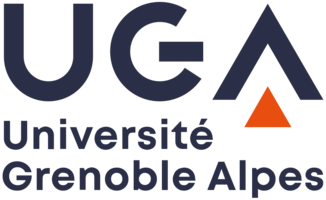
A research fellow position (at the post-doctoral level) is open for a 1-year period, starting no later than June, 1st, 2021, for a project aiming to develop, test and validate a Bayesian model of reading acquisition.
Location
The project is conducted by members of the Psychology and NeuroCognition Lab (CNRS laboratory) at the Grenoble-Alpes University, Grenoble, France. It is co-lead by Sylviane Valdois (PI of the Fluence project, expertise in the cognitive psychology of reading acquisition) and Julien Diard (expertise in Bayesian modeling).
Requirements
Mandatory
- Ph.D. in Cognitive Science, Cognitive Psychology, Computer science or equivalent work experience.
- Experience in programming, modeling and simulation
- Familiarity with Python
- Excellent organizational skills
- Ability to work in a team
Preferred
- Background and/or interest in cognitive psychology and reading
- High degree of maturity and autonomy
- French proficiency is a plus
Responsibilities
- Handling the BRAID-Acq model at the mathematical (probabilistic modeling) and computer (Python) levels
- Programming and testing the model through simulations
- Comparing the simulated and behavioral data
- Identifying the limits of the model, being proactive in the proposition of new solutions
- Exploring the model capacity to account for inter-individual variability on learning outcomes
- Contributing to result dissemination through international meetings and publications
Wages
From 2648€ to 3668€ monthly. Look out! The salary is before deductions (taxes…) estimated around 20%.
The project
Our team is using Bayesian algorithmic modeling to develop models of word recognition (the BRAID model), reading (BRAID-Phon) and orthographic learning (BRAID-Learn) [Ginestet et al., 2019 ; Ginestet et al., submitted ; Phénix et al., 2018 ; Saghiran et al., 2020]. The current goal is to simulate reading acquisition through the development of the BRAID-ACQ model. With respect to previous models [Ziegler et al., 2014 ; Perry et al., 2014 ; Pritchard et al., 2018], the originality of our approach is to provide a detailed implementation of the visual and visuo-attentional mechanisms involved in orthographic processing and how these mechanisms affect learning to read.
Besides, large scale studies have been carried out in primary schools (www.fluence.cnrs.fr) to study the evolution of reading and orthographic skills, identify the cognitive mechanisms that affect learning and explore the effect of different training protocols (serious games) on this evolution. Thus, we have collected a large experimental corpus on the early cognitive skills of beginning readers and their reading and spelling outcomes, 3 years later.
Our purpose is to model the impact of inter-individual variability in visual and visual attention processing on reading (and potentially spelling) acquisition.
The team
The successful applicant will work in collaboration with Sylviane Valdois (CNRS; PI of the Fluence project) and Julien Diard (CNRS, expert in Bayesian modeling). He/she will collaborate with the other team members, in particular Alexandra Steinhilber (Ph.D. student) and Emilie Ginestet (post-doctoral fellow).
Application
Applicants should complete and submit the following items:
- Application form at the following address:
https://emploi.cnrs.fr/Gestion/Offre/Default.aspx?Ref=UMR5105-GUYOMN0-023
- Cover letter explaining how they meet the requirements for this position
- Documents to support their qualifications
- Supporting documents (reference letter-s)
Contact
Do not hesitate to contact us for further information or help for applying.
Sylviane Valdois sylviane.valdois@univ-grenoble-alpes.fr
Julien Diard julien.diard@univ-grenoble-alpes.fr
Nous recrutons un chercheur de niveau post-doctoral sur un projet de modélisation probabiliste de l’apprentissage de la lecture.
Durée du contrat : 12 mois à partir du 1er juin 2021
Lieu : Laboratoire de Psychologie et NeuroCognition (UMR 5105), Université Grenoble-Alpes, Grenoble, France.
Compétences recherchées
Principales :
- Avoir un doctorat en sciences cognitives ou psychologie cognitive, ou un diplôme en sciences de l’ingénieur
- Avoir une formation en programmation et simulation informatique,
- Connaître la programmation en PYTHON
- Avoir des capacités organisationnelles et respecter les délais
- Aimer le travail en équipe
Secondaires :
- Intérêt pour l’apprentissage de la lecture
- Maturité et autonomie
- Bonne maîtrise de l’anglais
Responsabilités
- Prendre en main le modèle BRAID-Acq d’apprentissage de la lecture ; à la fois mathématiquement (modélisation probabiliste) et informatiquement (langage python).
- Programmer les simulations et évaluer des performances du modèle
- Comparer les résultats simulés et des données comportementales ;
- Identifier les limites du modèle, proposer et implémenter des variantes, tester leur efficacité.
- Étudier la capacité du modèle à rendre compte de la variabilité inter-individuelle, en contexte de résolution de tâches (prise en compte des compétences cognitives de chaque enfant) et en contexte d’apprentissage (trajectoires d’apprentissage).
- Contribuer à la diffusion des résultats (présentation à des conférences internationales, publications dans des revues internationales).
Salaire
De 2648€ à 3668€ brut mensuel selon les compétences. Le salaire brut s’entend avant prélèvements (impôt notamment). Compter environ 20% de moins pour le salaire net.
Contexte : le recrutement se fait dans le cadre du projet FLUENCE (PIA2 e-Fran) dirigé par Sylviane Valdois (CNRS), en collaboration avec Julien Diard (CNRS). Le candidat travaillera en collaboration avec les autres membres de l’équipe, notamment Alexandra Steinhilber (doctorante sur le projet) et Emilie Ginestet (post-doctorante).
Présentation du projet
Notre équipe utilise la modélisation Bayésienne algorithmique pour développer des modèles capables de simuler différentes facettes de la lecture et de l’apprentissage orthographique (Ginestet et al., 2019 ; Ginestet et al., soumis ; Phénix et al., 2018 ; Saghiran et al., 2020). Nous travaillons à présent au développement d’un modèle de l’apprentissage de la lecture (BRAID-Acq). Par rapport aux modèles existants (Ziegler et al., 2014 ; Perry et al., 2014 ; Pritchard et al., 2018), l’originalité de notre approche est de considérer et de modéliser l’impact des traitements visuels et visuo-attentionnels sur cet apprentissage.
Nous menons par ailleurs des études à grande échelle dans les écoles (projet e-Fran « Fluence », www.fluence.cnrs.fr) pour étudier les trajectoires d’apprentissage de la lecture et de l’orthographe en début de primaire et l’effet d’entraînements spécifiques (jeux sérieux) sur ces apprentissages. Nous disposons ainsi de données détaillées sur les compétences cognitives d’une large population d’enfants en lien avec leurs trajectoires d’apprentissage.
Notre objectif est à présent de modéliser l’impact de la variabilité inter-individuelle des traitements visuels et visuo-attentionnels sur ces trajectoires d’apprentissage.
Les candidats doivent
- Se connecter au portail emploi CNRS à l’adresse suivante :
https://emploi.cnrs.fr/Gestion/Offre/Default.aspx?Ref=UMR5105-GUYOMN0-023
- Renseigner le formulaire
- Rédiger une lettre de motivation mettant en évidence leur adéquation au poste
- Joindre les documents attestant de leurs qualifications
- Ajouter tout autre document en appui à leur demande (lettre(s) de référence par exemple)
Personnes à contacter :
Sylviane Valdois sylviane.valdois@univ-grenoble-alpes.fr
Julien Diard julien.diard@univ-grenoble-alpes.fr
Western University: Postdoctoral Fellowship, Cognitive Neuroscience

The Translational Cognitive Neuroscience Lab at Western University (co-directed by Tim Bussey and Lisa Saksida) is looking for a postdoctoral researcher to undertake cutting-edge research in the area of brain mechanisms of cognition and behaviour. Our main behavioural approach involves touchscreen-based testing of mouse models, which allows us to assess many different aspects of high-level cognition in a way that is highly relevant to human patients. Touchscreen testing also facilitates reproducibility through increased standardization and reductions in experimenter and environmental influence. We subscribe to principles of open science, and promote data and knowledge sharing through mousebytes.ca and touchscreencognition.org.
This project is focused on developing an understanding of how perineuronal nets-- components of the extracellular matrix that are primarily found wrapped around inhibitory, parvalbumin positive cortical neurons—contribute to adult learning and memory processes. This will be achieved by manipulating perineuronal nets in cortical regions critical for learning, memory and behavioural control, and/or manipulating levels of oxidative stress via diet, exercise, or environmental enrichment, and then assessing the mice on cognitive tests dependent on those brain regions.
Required qualifications:
- PhD in neuroscience or related field
- Experience with scientific writing
Required skills:
- Experience in conception, design and performance of neuroscience-related experiments, including stereotaxic surgery and intracerebral infusions
- Experience with behavioural assessment in mouse or rat models
- Experience with in vivo electrophysiology, fibre photometry, optogenetics, chemogenetics, or other methodologies for measuring or manipulating the brain
- Knowledge of neural mechanisms of learning, memory, and/or other aspects of cognition
- Good writing skills, evidenced in peer-reviewed publications
- Skills in statistical analysis in R, SPSS or other relevant programs
- Advanced mathematical or computational expertise is a plus
Required abilities:
- Ability to work independently and take the initiative in research projects
- Collaborative team player
- Excellent communication skills
Location:
The position will be based primarily in the Robarts Research Institute. Robarts is one of the premier research institutes in Canada with a vibrant research community and many opportunities for collaborations. Cognitive neuroscience in health and disease is a major research focus at Western, which is supported by BrainsCAN, a $66M Canada First Research Excellence Fund grant, through to 2026.
The University of Western Ontario (www.uwo.ca) is a major educational and research center in Ontario with over 25,000 undergraduate and 5,000 graduate students. Cognitive neuroscience in health and disease is a major research focus at Western. London, also known as the Forest City, is an affordable and lively community close to the Great Lakes and two hours from Toronto. The city offers many options for outdoor and cultural activities.
Details:
The initial appointment is for 1 year, with possibility of renewal. Salary will commensurate with experience ($40,000 - $50,000) and includes additional benefits (https://www.uwo.ca/hr/benefits/your_benefits/pda/index.html).
To apply, please submit a cover letter that describes your relevant training and career goals, up-to-date CV, research statement, up to three representative publications, as well as the name and contact information of two references to: Dr. Lisa Saksida (lsaksida@uwo.ca) & Dr. Tim Bussey (tbussey@uwo.ca) with “Postdoc Application” in the subject line.
Review of the applications will begin March 15, 2021 and will continue until the position is filled.
For more information, please see
TCNLab: http://www.tcnlab.uwo.ca @TCNLab
BrainsCAN: https://brainscan.uwo.ca/ @Brains_CAN
Touchscreens: https://touchscreencognition.org/ @TouchScreenCog
Mouse http://www.mousebytes.ca
We thank all applicants for their interest; however, only those individuals selected for an interview will be contacted.
Western is committed to employment equity and diversity in the workplace and welcomes applications from women, members of racialized groups/visible minorities, Aboriginal persons, persons with disabilities, persons of any sexual orientation, and persons of any gender identity or gender expression.
Western University: Postdoctoral Fellowship, Cognitive Neuroscience

The Translational Cognitive Neuroscience Lab at Western University (co-directed by Tim Bussey and Lisa Saksida) is looking for a postdoctoral researcher to undertake cutting-edge research in the area of brain mechanisms of cognition and behaviour. Our main behavioural approach involves touchscreen-based testing of mouse models, which allows us to assess many different aspects of high-level cognition in a way that is highly relevant to human patients. Touchscreen testing also facilitates reproducibility through increased standardization and reductions in experimenter and environmental influence. We subscribe to principles of open science, and promote data and knowledge sharing through mousebytes.ca and touchscreencognition.org.
This project is focused on molecular and cellular mechanisms of cognition in the hippocampus and prefrontal cortex, and will involve combining various neurotechnologies including fibre photometry recording and optogenetic manipulations with touchscreen-based cognitive assessment. The project is part of a collaboration between Western’s BrainsCAN and McGill’s Healthy Brains for Healthy Lives Canada First Research Excellence Fund initiatives and will involve opportunities for interaction across the two sites.
Required qualifications:
- PhD in neuroscience or related field
- Experience with scientific writing
Required skills:
- Experience in conception, design and performance of neuroscience-related experiments, including stereotaxic surgery and intracerebral infusions
- Experience with behavioural assessment in mouse or rat models
- Experience with in vivo electrophysiology, fibre photometry, optogenetics, chemogenetics, or other methodologies for measuring or manipulating the brain
- Knowledge of neural mechanisms of learning, memory, and/or other aspects of cognition
- Good writing skills, evidenced in peer-reviewed publications
- Skills in statistical analysis in R, SPSS or other relevant programs
- Advanced mathematical or computational expertise is a plus
Required abilities:
- Ability to work independently and take the initiative in research projects
- Collaborative team player
- Excellent communication skills
Location:
The position will be based primarily in the Robarts Research Institute, although post-COVID there will be opportunities to travel to the Douglas Research Institute in Montreal to facilitate collaboration. Robarts is one of the premier research institutes in Canada with a vibrant research community and many opportunities for collaborations. Cognitive neuroscience in health and disease is a major research focus at Western, which is supported by BrainsCAN, a $66M Canada First Research Excellence Fund grant, through to 2026.
The University of Western Ontario (www.uwo.ca) is a major educational and research center in Ontario with over 25,000 undergraduate and 5,000 graduate students. Cognitive neuroscience in health and disease is a major research focus at Western. London, also known as the Forest City, is an affordable and lively community close to the Great Lakes and two hours from Toronto. The city offers many options for outdoor and cultural activities.
Details:
The initial appointment is for 1 year, with possibility of renewal. Salary will commensurate with experience ($40,000 - $50,000) and includes additional benefits (https://www.uwo.ca/hr/benefits/your_benefits/pda/index.html).
To apply, please submit a cover letter that describes your relevant training and career goals, up-to-date CV, research statement, up to three representative publications, as well as the name and contact information of two references to: Dr. Lisa Saksida (lsaksida@uwo.ca) & Dr. Tim Bussey (tbussey@uwo.ca) with “Postdoc Application” in the subject line.
Review of the applications will begin March 15, 2021 and will continue until the position is filled.
For more information, please see
TCNLab: http://www.tcnlab.uwo.ca @TCNLab
BrainsCAN: https://brainscan.uwo.ca/ @Brains_CAN
Touchscreens: https://touchscreencognition.org/ @TouchScreenCog
Mouse http://www.mousebytes.ca
We thank all applicants for their interest; however, only those individuals selected for an interview will be contacted.
Western is committed to employment equity and diversity in the workplace and welcomes applications from women, members of racialized groups/visible minorities, Aboriginal persons, persons with disabilities, persons of any sexual orientation, and persons of any gender identity or gender expression.
Western University: Postdoctoral Fellowship, Cognitive Neuroscience

The Translational Cognitive Neuroscience Lab at Western University (co-directed by Tim Bussey and Lisa Saksida) is looking for a postdoctoral researcher to undertake cutting-edge research in the area of brain mechanisms of cognition and behaviour. Our main behavioural approach involves touchscreen-based testing of mouse models, which allows us to assess many different aspects of high-level cognition in a way that is highly relevant to human patients. Touchscreen testing also facilitates reproducibility through increased standardization and reductions in experimenter and environmental influence. We subscribe to principles of open science, and promote data and knowledge sharing through mousebytes.ca and touchscreencognition.org.
This project is focused on developing an understanding of parvalbumin positive interneurons interact with neuromodulators including dopamine and acetylcholine in the service of aspects of cognition including attention, working memory and cognitive flexibility, and how disruptions in this system related to cognitive dysfunction in disorders such as schizophrenia. The work will involve combining various neurotechnologies including fibre photometry recording and optogenetic manipulations with touchscreen-based cognitive assessment.
Required qualifications:
- PhD in neuroscience or related field
- Experience with scientific writing
Required skills:
- Experience in conception, design and performance of neuroscience-related experiments, including stereotaxic surgery and intracerebral infusions
- Experience with behavioural assessment in mouse or rat models
- Experience with in vivo electrophysiology, fibre photometry, optogenetics, chemogenetics, or other methodologies for measuring or manipulating the brain
- Knowledge of neural mechanisms of learning, memory, and/or other aspects of cognition
- Good writing skills, evidenced in peer-reviewed publications
- Skills in statistical analysis in R, SPSS or other relevant programs
- Advanced mathematical or computational expertise is a plus
Required abilities:
- Ability to work independently and take the initiative in research projects
- Collaborative team player
- Excellent communication skills
Location:
The position will be based primarily in the Robarts Research Institute. Robarts is one of the premier research institutes in Canada with a vibrant research community and many opportunities for collaborations. Cognitive neuroscience in health and disease is a major research focus at Western, which is supported by BrainsCAN, a $66M Canada First Research Excellence Fund grant, through to 2026.
The University of Western Ontario (www.uwo.ca) is a major educational and research center in Ontario with over 25,000 undergraduate and 5,000 graduate students. Cognitive neuroscience in health and disease is a major research focus at Western. London, also known as the Forest City, is an affordable and lively community close to the Great Lakes and two hours from Toronto. The city offers many options for outdoor and cultural activities.
Details:
The initial appointment is for 1 year, with possibility of renewal. Salary will commensurate with experience ($40,000 - $50,000) and includes additional benefits (https://www.uwo.ca/hr/benefits/your_benefits/pda/index.html).
To apply, please submit a cover letter that describes your relevant training and career goals, up-to-date CV, research statement, up to three representative publications, as well as the name and contact information of two references to: Dr. Lisa Saksida (lsaksida@uwo.ca) & Dr. Tim Bussey (tbussey@uwo.ca) with “Postdoc Application” in the subject line.
Review of the applications will begin March 15, 2021 and will continue until the position is filled.
For more information, please see
TCNLab: http://www.tcnlab.uwo.ca @TCNLab
BrainsCAN: https://brainscan.uwo.ca/ @Brains_CAN
Touchscreens: https://touchscreencognition.org/ @TouchScreenCog
Mouse http://www.mousebytes.ca
We thank all applicants for their interest; however, only those individuals selected for an interview will be contacted.
Western is committed to employment equity and diversity in the workplace and welcomes applications from women, members of racialized groups/visible minorities, Aboriginal persons, persons with disabilities, persons of any sexual orientation, and persons of any gender identity or gender expression.
Université Laval: Postdoctoral Fellowship, Applied Cognitive Psychology
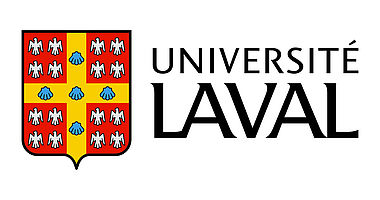
A postdoctoral position is available at the Faculty of Social Sciences at Université Laval, Quebec City, Canada, under the supervision of Dr. Sébastien Tremblay, full professor at the School of Psychology. Sebastien Tremblay is the director of the Co-DOT lab (http://www.co-dot.ulaval.ca), a research laboratory specialized in applied cognitive psychology and human performance.
This is a full-time position for 2 years (extensible) related to the human-technologies interaction. Recent advances in computer engineering, machine learning and artificial intelligence lead toward a world within which humans and automatic systems are required to coexist, cooperate and share a common environment or via augmented and virtual reality. As part of this research project, the selected candidate will work at developing mixed initiative systems in which both human and machine share tasks and decisions depending on their state and that of the environment. For instance, the candidate will be asked to build a model predicting the cognitive and affective state of the user from behavioral and physiological measures. This project will be carried out in a multidisciplinary context, comprising experts from several domains such as human factors, robotics, machine learning, virtual and augmented reality, and automatic computerized systems.
The preferred candidate will have the following qualifications:
- PhD in cognitive psychology or cognitive sciences;
- Superior skills with writing journal manuscripts;
- Ability to supervise and coordinate undergraduate research projects and graduate students;
- Be able to effectively balance multiple tasks and projects;
- Detail-oriented, motivated, efficient, and able to work independently and in a team environment;
- Excellent communication and organization skills (knowledge of French is an asset);
- Experience with conducting multidisciplinary projects in collaboration with industrial partners is an asset;
- Experience with analyzing psychophysiological data is an asset (e.g., ocular, cardiac, respiratory, electrodermal activity);
- Experience with writing grant applications is an asset.
Interested applicants may forward a cover letter, their curriculum vitae and the names of two referees by email to:
Dr. Sébastien Tremblay
École de psychologie
Faculté des sciences sociales
2325, rue des Bibliothèques
Email: sebastien.tremblay@psy.ulaval.ca
Notes:
Salary will be between CA$48,000 – CA$56,000 per year plus travel budget for attending conferences.
We thank all applicants for their interest; however, only individuals selected for an interview will be contacted.
Simon Fraser University: Postdoctoral Fellowship, Social Attention Group in Education
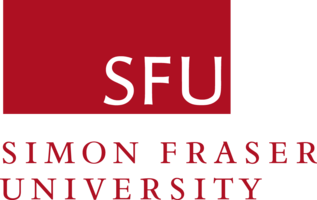
A postdoctoral position is available in the Social Attention Group in Education (SAGE) at Simon Fraser University (SFU), in Vancouver, Canada (https://sagesfu.ca/)
The postdoctoral researcher will collaborate and develop projects on the topics of social attention, facial expression production and perception, and interpersonal synchrony of behaviour during face-to-face interactions. Many of the studies will initially be conducted remotely, due to the pandemic-related restrictions on in-person research with human participants. SAGE is an interdisciplinary group of graduate, undergraduate, and faculty researchers spanning departments of psychology, education and engineering. Researchers have access to state-of-the art eye tracking systems (e.g. SMI ETG2, SR Research Eyelink 1000), video recording, and facial expression analysis software (iMotions). SAGE has strong links to the Departments of Psychology at SFU and University of British Columbia with ongoing collaborations and opportunities for training.
The candidate should have a Ph.D. in Psychology or a related field (e.g., cognitive science, neuroscience, computing science) with experience in programming (e.g., Matlab, Python, R), and/or eye tracking methodologies. Knowledge of automated facial expression analysis and advanced statistical techniques for analysing time series data (e.g. cross-recurrence quantification; windowed cross-lagged correlation analysis) would be an asset, although a propensity for statistics and an eagerness to learn new techniques is more important. The initial appointment will be made for 6 months to 1 year, with a possibility for renewal. Salary will be according to SFU guidelines. Start date is flexible but the goal is to begin the position between November 2020 and January 2021.
To apply, please send your CV, the expected date of availability, a short statement of research interests, and contact information for three referees. For any inquiries about the post, please email ebirming@sfu.ca.
Please feel to share this announcement with those you feel may be interested.
McGill University: Postdoctoral Fellowship, Attention and Social Cognition

We anticipate an opening for a postdoctoral position in my Attention & Social Cognition group at the Department of Psychology, McGill University (Montreal, Canada).
We are seeking qualified individuals to collaborate and develop projects on the topics of human attention, social cognition, and interactive (group) cognition using behavioral, neuroimaging (EEG), and eye tracking methods. The A&SC group includes a vibrant team of graduate, undergraduate, postdoctoral, and visiting researchers and houses dedicated equipment for investigating attention and interactive behaviors including the dual TOBII eye tracking eye glasses, an SR Research EyeLink eye tracker, and a 64-channel BioSemi EEG system.
The candidate should have a Ph.D. in Psychology or a related field (e.g., Cognitive Science, Neuroscience) with experience in programming (e.g., Matlab, Python, R), and EEG and/or eye tracking methodologies. The initial appointment will be made for one year, with a possibility for renewal. Salary will be according to McGill guidelines. Start date is flexible.
Along with the Department of Psychology, the MNI and other satellite institutes, the students within the A&SC lab are uniquely affiliated with the NSERC-CREATE network in complex dynamics of biological systems (https://cd-create.org/home) and the HBHL initiative (https://www.mcgill.ca/hbhl/), both of whom provide multiple networking, training, career, and funding opportunities.
To apply, please send your CV, the expected date of availability, a short statement of research interests, and contact information for three referees. For any inquiries about the post, please email jelena.ristic@mcgill.ca.
Please feel to share this announcement with those you feel may be interested.
Jelena Ristic, PhD
Associate Professor & William Dawson Scholar
Department of Psychology
McGill University
1205 Dr. Penfield Avenue
Montreal, QC, H3A 1B1
Canada
Phone: 514.398.2091
Fax: 514.398.4896
Email: jelena.ristic@mcgill.ca
Web: asc.mcgill.ca
University de Montréal: PhD Scholarship, Kinesiology and Human Neuroscience / Bourse de Doctorat, Kinésiologie et Neurosciences Humaines
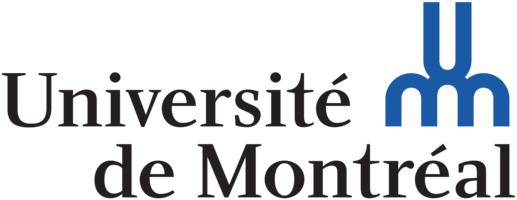
A 3-year PhD scholarship (18,000 CAD /yr) is available at the University de Montréal under the supervision of Dr Benjamin Pageaux (School of Kinesiology) and Dr Pierre Rainville (Faculty of Dentistry). The PhD student will be a part of a unique multidisciplinary research centre, the Centre de Recherche de l’Institut Universitaire de Gériatrie de Montréal (CRIUGM).
Applicants should have, or anticipate having, a MSc and a strong research background in motor and/or cognitive performance. Knowledge or expertise in pain, transcranial magnetic stimulation or peripheral muscle/nerve stimulation will be an asset. A strong interest in integrative neuroscience and multidisciplinary research is essential.
The successful applicant will be responsible, with the help of her/his supervisory team, for:
- Developing an integrative and multidisciplinary expertise merging the fields of neurophysiology, psychology and kinesiology.
- Independently carrying out research and completing a PhD dissertation within three years.
- Collecting and analyzing perceptual, behavioral and neurophysiological data.
- Reporting the results at conferences and in international peer-reviewed journals.
- Actively contributing to the life of the laboratory and CRIUGM.
The yearly renewing of the scholarship is conditioned by the continuous application to nominal scholarships offered by national and international funding agencies.
There are no citizenship restrictions for this PhD scholarship. Additional information about tuition fees and living expenses are available via the following link: https://admission.umontreal.ca/en/student-info/tools-and-tips/tuition-and-fees/
It is not compulsory to speak French at the onset of the scholarship. However, it is expected that the successful applicant will commit to learn French as part of actively contributing to and participating in the Université de Montreal and the CRIUGM communities.
Starting date is planned for January 2021. Flexibility can be given for an earlier or later start if carefully justified. Selected applicants will be interviewed via videoconference.
HOW TO APPLY?
Please send the following documents in a single email to labodouleur@gmail.com:
- Cover letter detailing the interest for this specific scholarship as well as the potential starting date.
- Detailed CV.
- Two reference letters.
- The completed application form and the associated enclosed files.
PROJECT SUMMARY
Every day, when we perform voluntary physical and mental tasks, such as climbing the stairs or solving a complex puzzle, we perceive effort. The perception of effort is associated with voluntary actions, contributes to the sense of agency, and provides crucial information on the perceived cost of personal actions. Interestingly, while it seems obvious that when we perceive pain the tasks of our everyday life become more effortful (or harder), this assumption has not been investigated.
The proposed work uses a multidisciplinary approach to understand how pain impacts performance and the perception of effort during cognitive, physical and dual tasks. The PhD project will benefit from the expertise of the supervisory team in effort, pain and performance; allowing the development of a unique research project breaking the traditional barriers between the cognitive and motor domains.
The overall experimental plan is to explore the effects of pain on effort perception and performance in young and older healthy adults. Neurophysiological mechanisms will be explored with the use of transcranial magnetic stimulation.
ADDITIONAL INFORMATION?
Université de Montréal : https://www.umontreal.ca/en/udem/#facts-and-figures
Études supérieures et postdoctorales - Université de Montréal : https://esp.umontreal.ca/english/home/
CRIUGM: http://www.criugm.qc.ca/en.html
Une bourse de doctorat de 3 ans (18 000 CAD /an) est disponible à l'Université de Montréal sous la supervision du Dr Benjamin Pageaux (École de kinésiologie) et du Dr Pierre Rainville (Faculté de médecine dentaire). La doctorante ou le doctorant fera partie d'un centre de recherche multidisciplinaire unique, le Centre de Recherche de l'Institut Universitaire de Gériatrie de Montréal (CRIUGM).
Les candidates ou candidats doivent avoir, ou prévoir d'avoir, une maîtrise et une solide expérience de la recherche sur les performances motrices et/ou cognitives. Des connaissances ou une expertise en douleur, stimulation magnétique transcranienne ou de stimulation musculaire/nerveuse périphérique seront un atout. Un intérêt marqué pour les neurosciences intégratives et la recherche multidisciplinaire est essentiel.
La candidate ou le candidat retenu(e) sera responsable, avec l'aide de son équipe de supervision de:
- Développer une expertise intégrative et multidisciplinaire fusionnant les domaines de la neurophysiologie, psychologie et kinésiologie.
- Mener des recherches de façon indépendante et réaliser une thèse de doctorat dans un délai de trois ans.
- Collecter et analyser des données perceptuelles, comportementales et neurophysiologiques.
- Communiquer les résultats dans des revues et des conférences internationales à comité de lecture.
- Contribuer activement à la vie du laboratoire et du CRIUGM.
Le renouvellement annuel de la bourse est conditionné par l'application continue aux bourses nominales offertes par les organismes de financement nationaux et internationaux.
Il n'y a aucune restriction de nationalité pour cette bourse de doctorat. Des informations supplémentaires sur les frais de scolarité et les frais de subsistance sont disponibles via le lien suivant : https://admission.umontreal.ca/info-conseils/outils-et-astuces/prevoir-son-budget/
La date de début est prévue pour janvier 2021. Une certaine souplesse peut être accordée pour un début plus précoce ou plus tardif si cela est soigneusement justifié. Les candidates et candidats sélectionnés seront interviewés par vidéoconférence.
COMMENT POSTULER?
Veuillez envoyer à l'adresse labodouleur@gmail.com les documents suivants dans un seul courriel :
- Lettre de motivation détaillant l'intérêt pour cette bourse spécifique ainsi que la date de début potentielle.
- CV détaillé.
- Deux lettres de référence
- Le formulaire de candidature complété et les fichiers joints associés.
RÉSUMÉ DU PROJET
Nous percevons un effort lorsque nous réalisons une tâche mentale ou physique, tel que monter des marches ou résoudre un puzzle complexe. La perception de l’effort, présente lors d’actions volontaires, contribue au sentiment de contrôle de nos actions (i.e., agentivité) et nous apporte des informations cruciales sur le coût de celles-ci. Alors qu’il apparait évident qu’en présence de douleur les tâches de notre vie quotidienne nous demandent plus d’effort (tâches perçues comme plus difficiles), cette hypothèse n’a jamais été testée.
Le projet utilise une approche multidisciplinaire pour comprendre comment la douleur affecte la performance et la perception de l'effort lors de tâches cognitives, physiques et doubles. Le projet de doctorat bénéficiera de l'expertise de l'équipe de supervision en matière d'effort, de douleur et de performance ; permettant ainsi le développement d'un projet de recherche unique brisant les barrières traditionnelles entre les domaines cognitifs et moteurs.
Le plan expérimental global consiste à explorer les effets de la douleur sur la perception de l'effort et la performance chez des adultes jeunes et âgés en bonne santé. Les mécanismes neurophysiologiques seront explorés à l'aide de la stimulation magnétique transcrânienne.
DES INFORMATIONS COMPLÉMENTAIRES?
Université de Montréal : https://www.umontreal.ca/l-udem/
Études supérieures et postdoctorales - Université de Montréal : https://esp.umontreal.ca/accueil/
CRIUGM : http://www.criugm.qc.ca/
